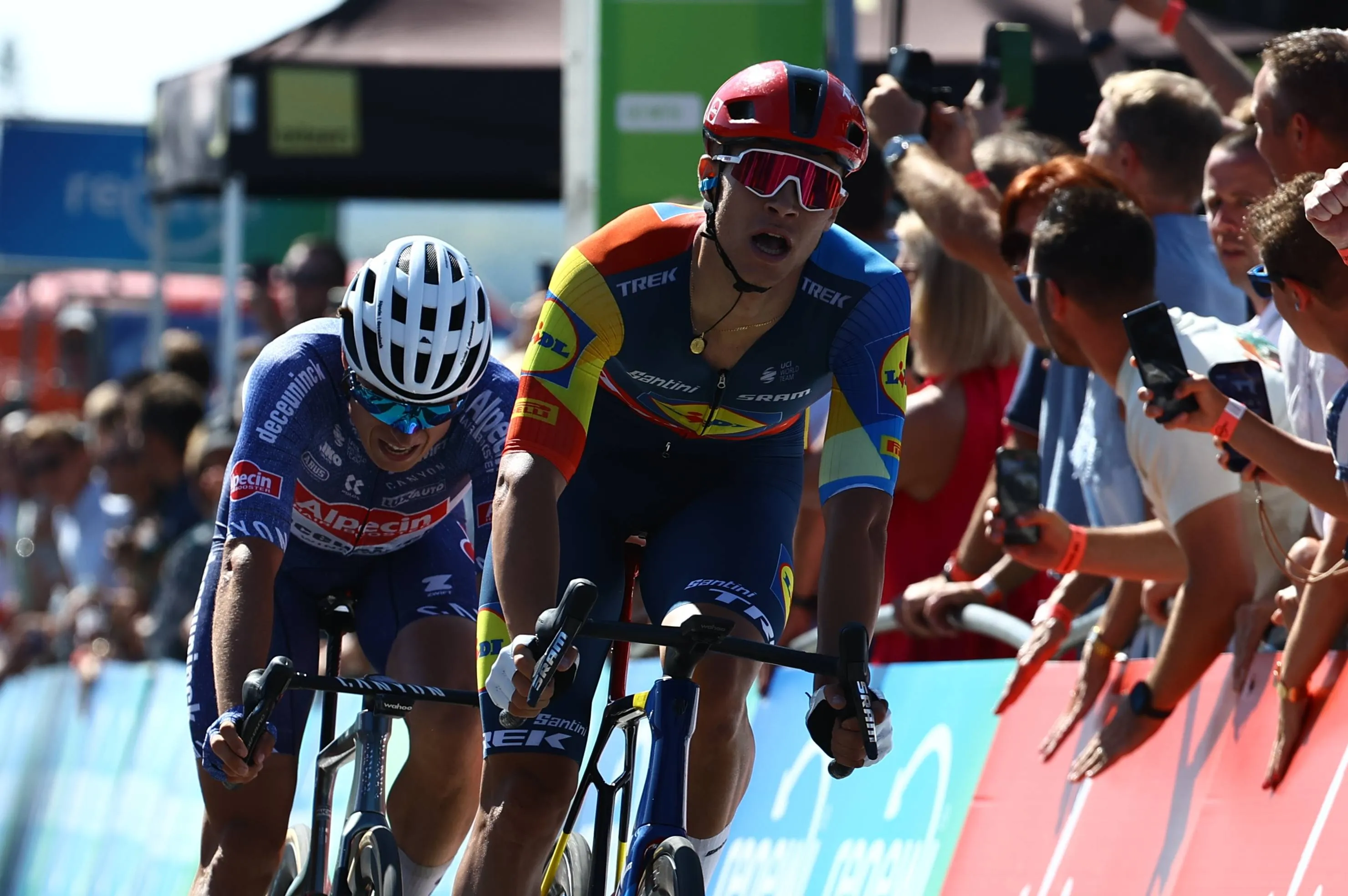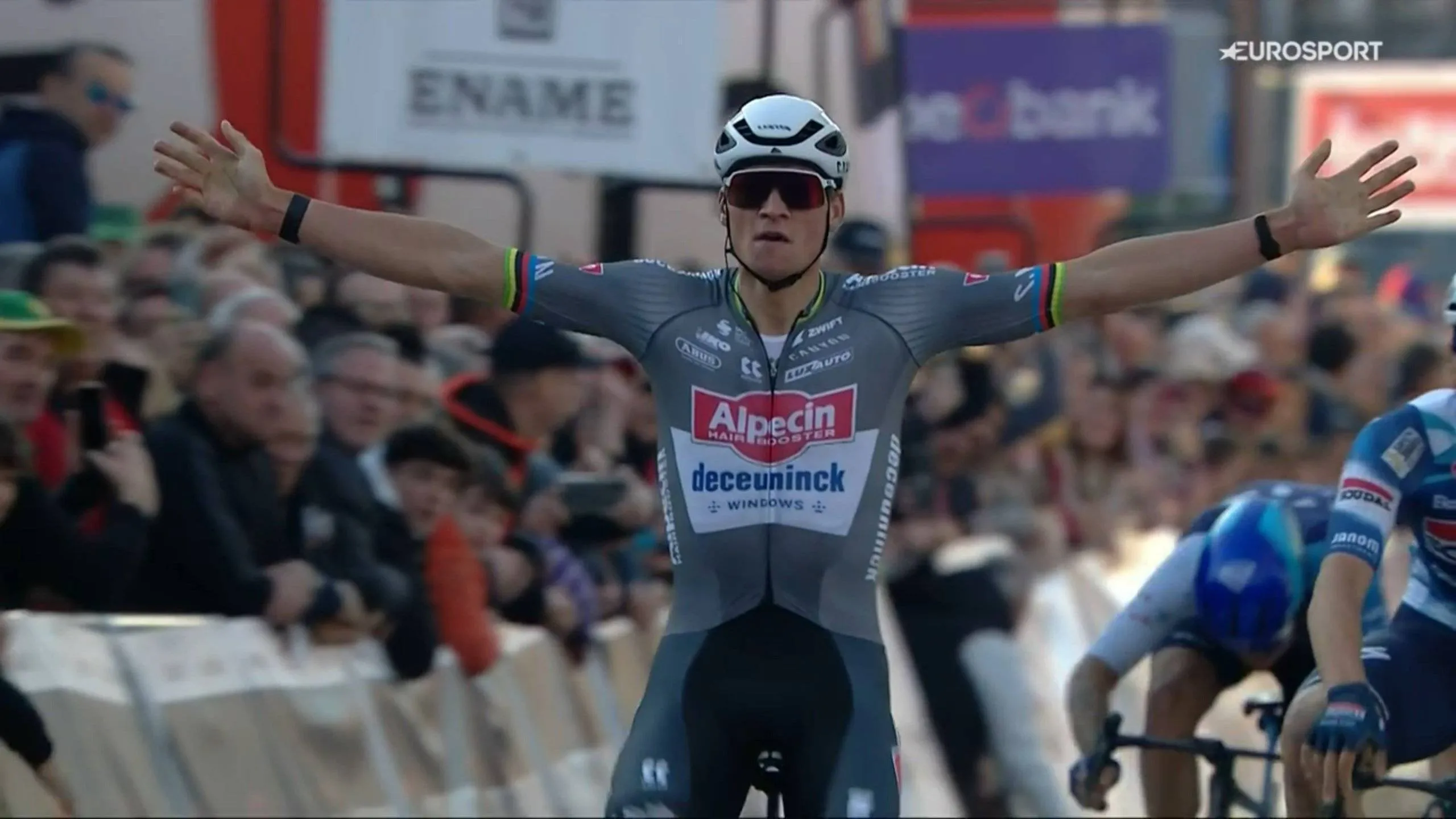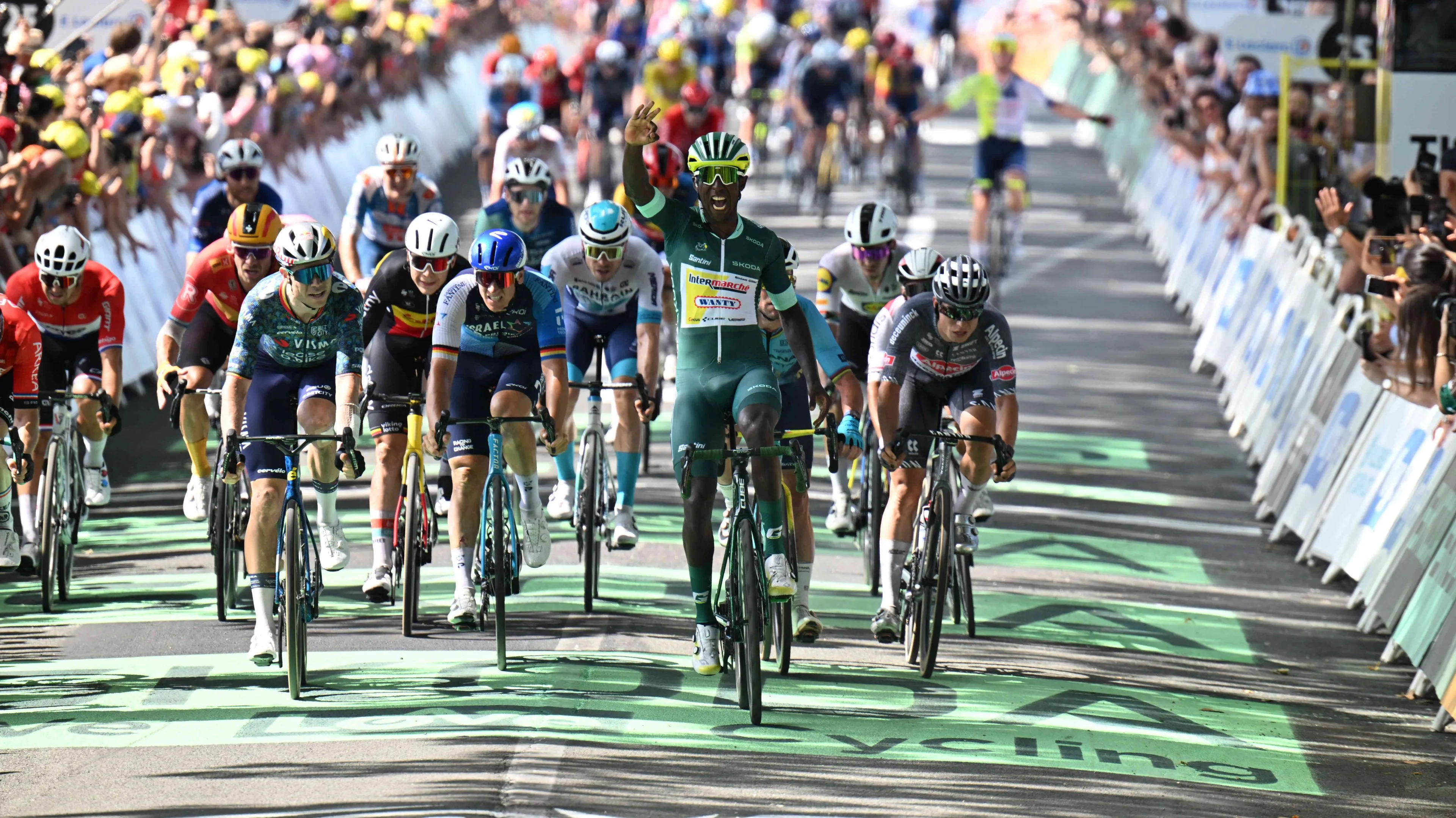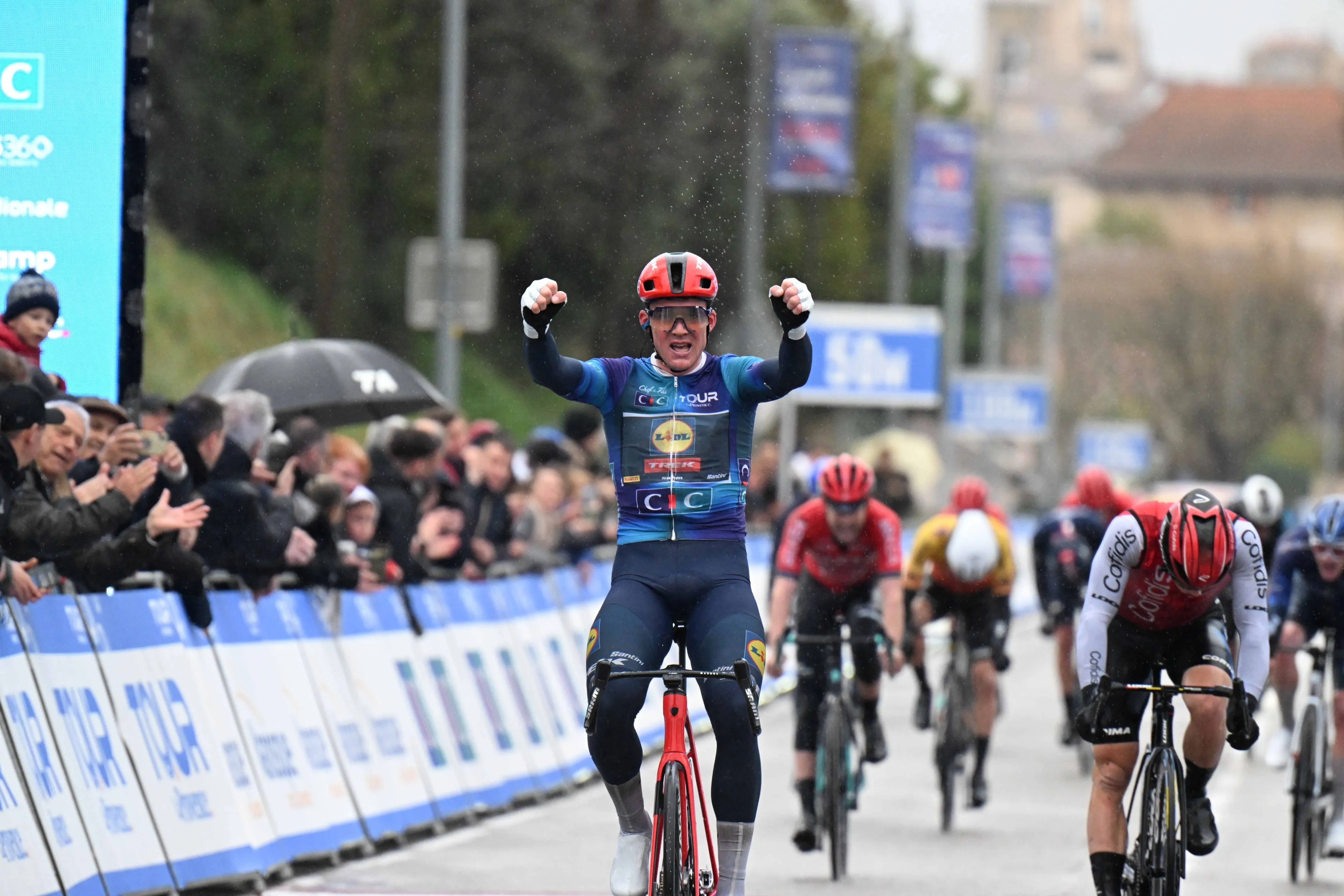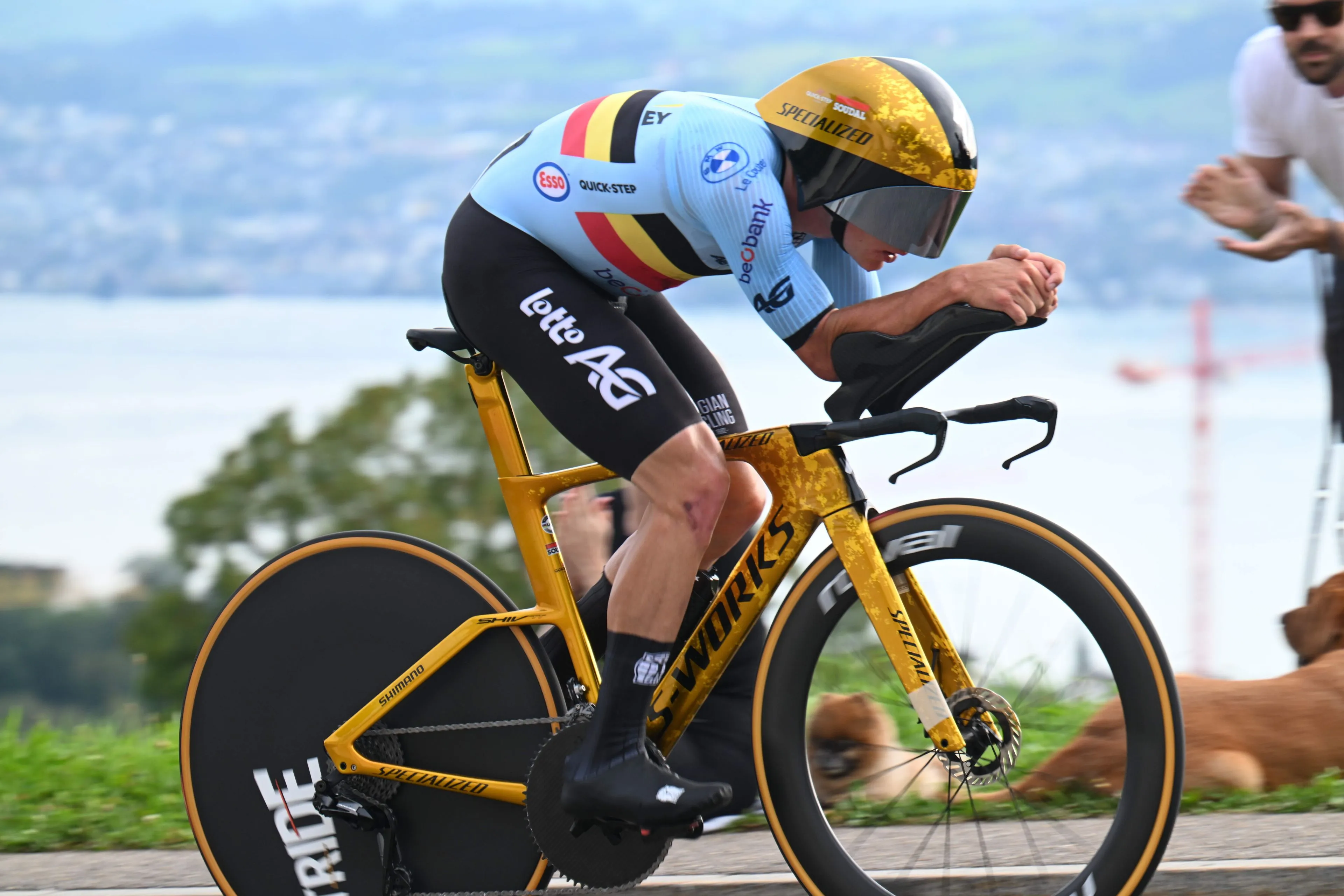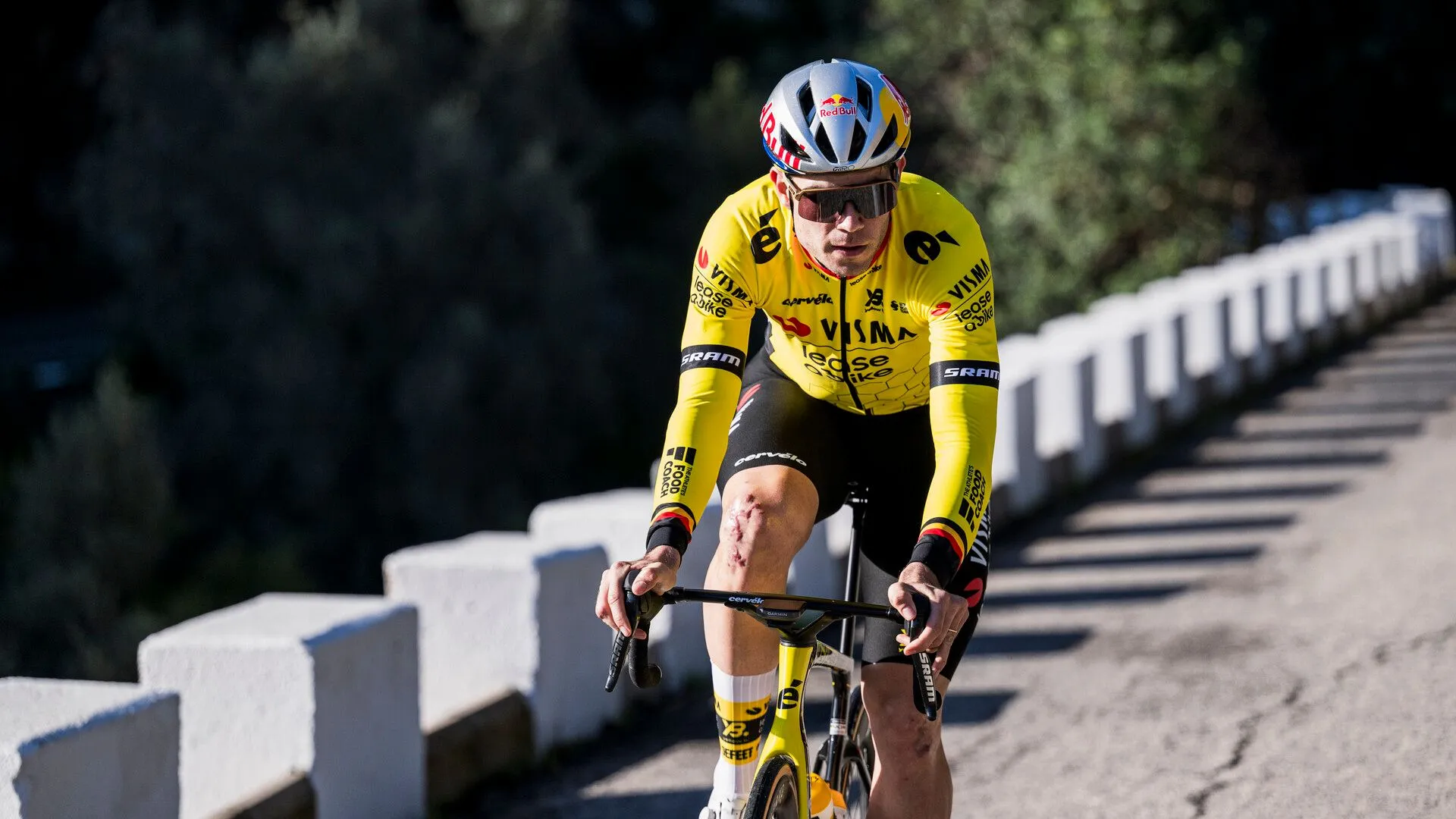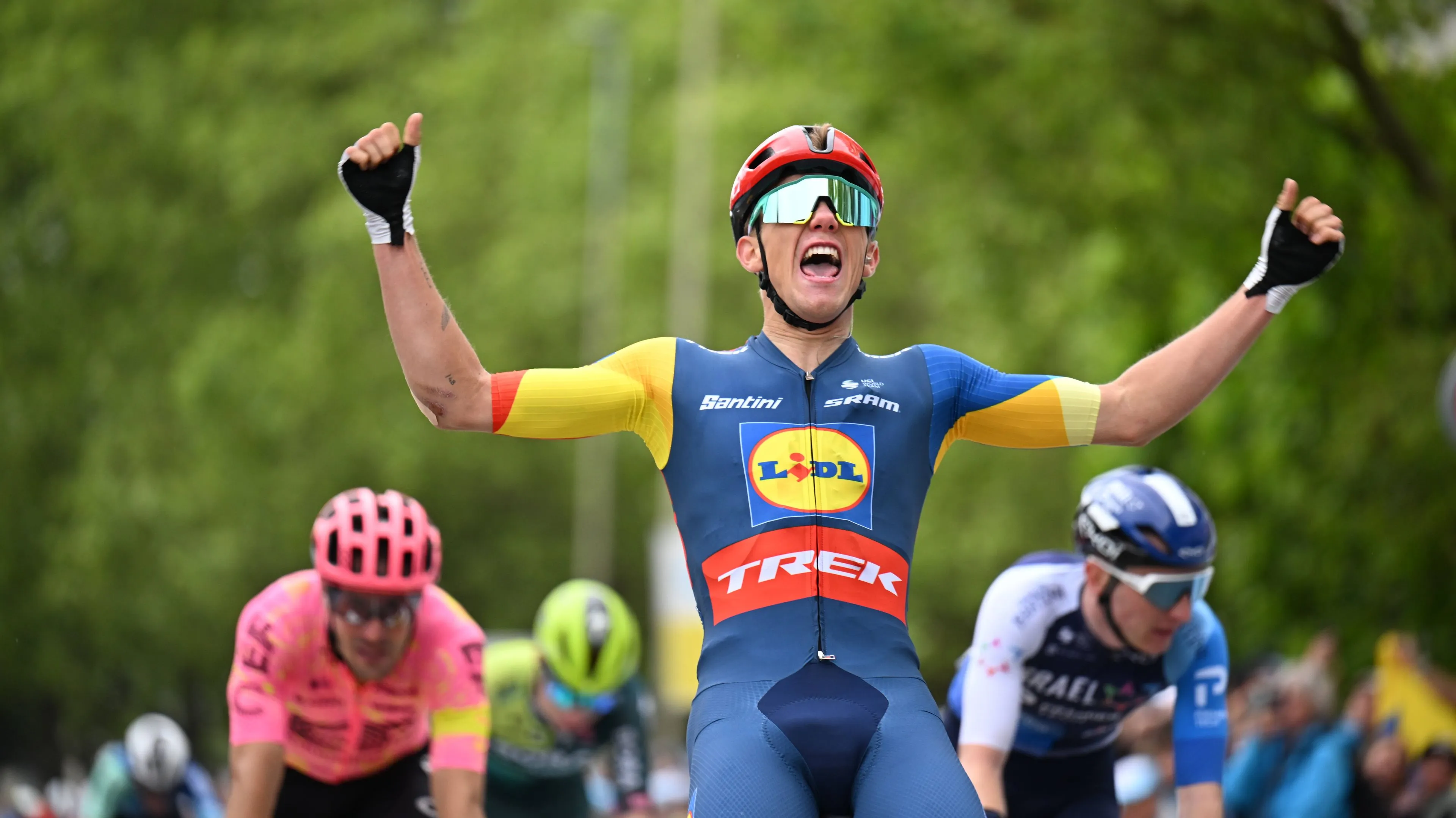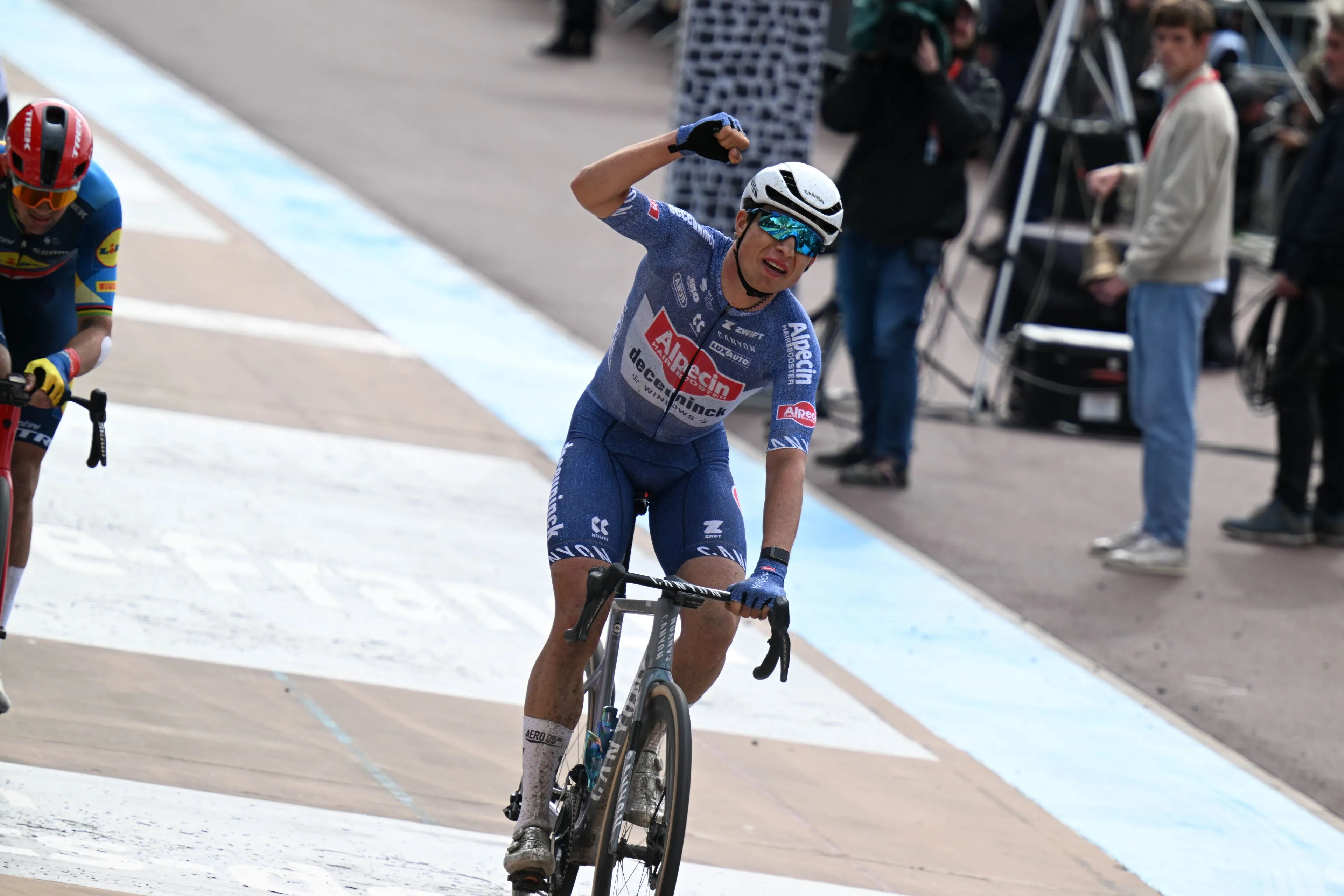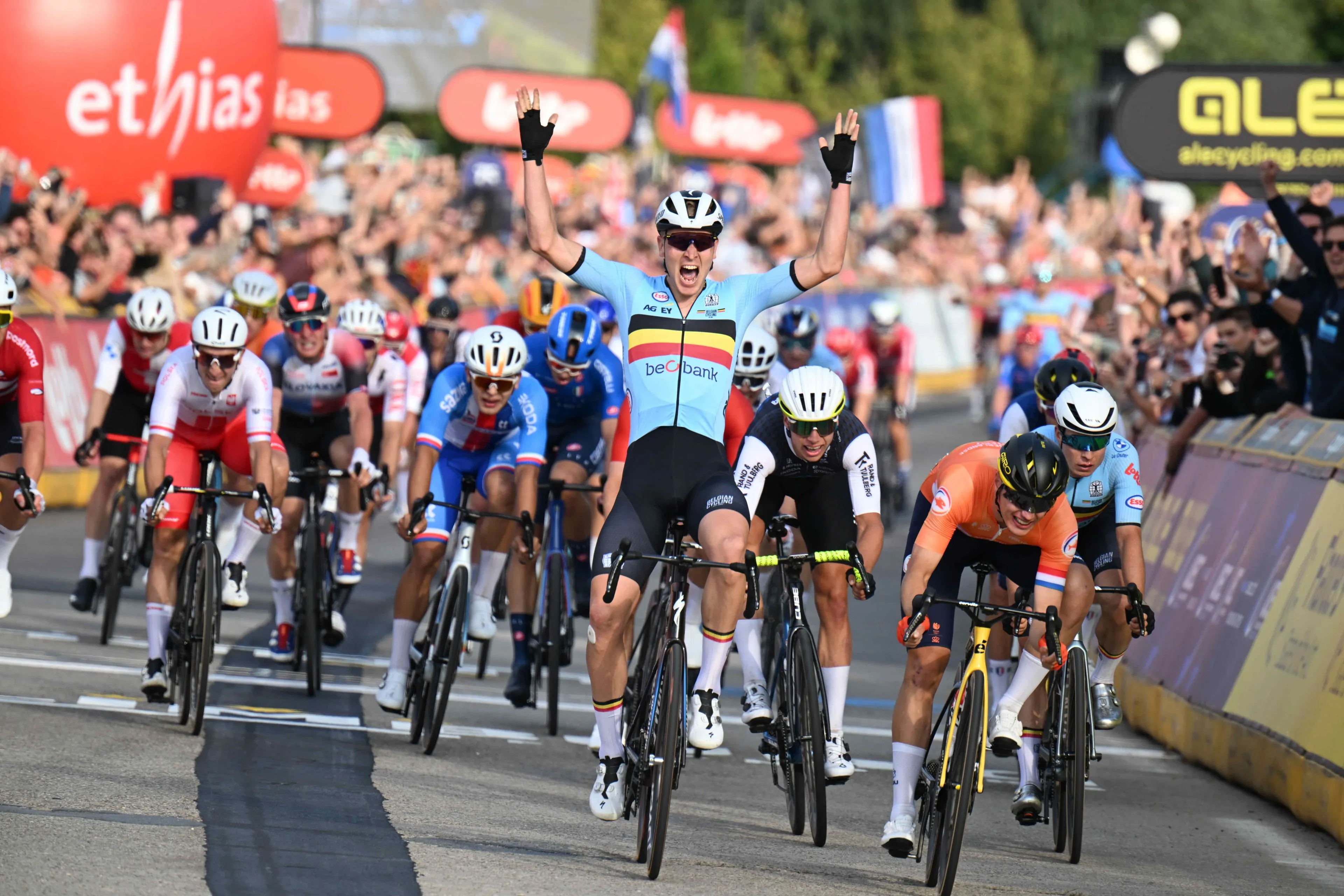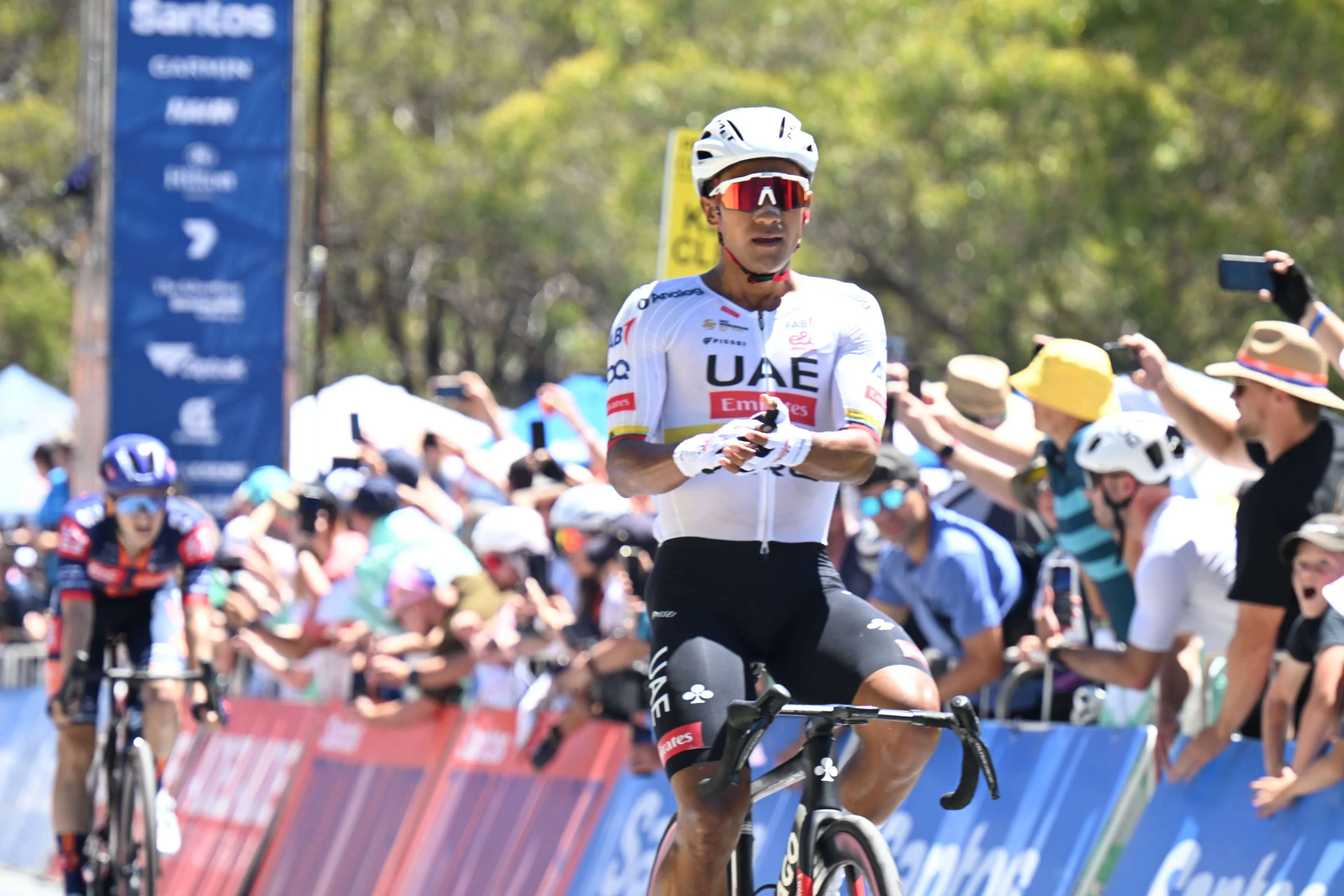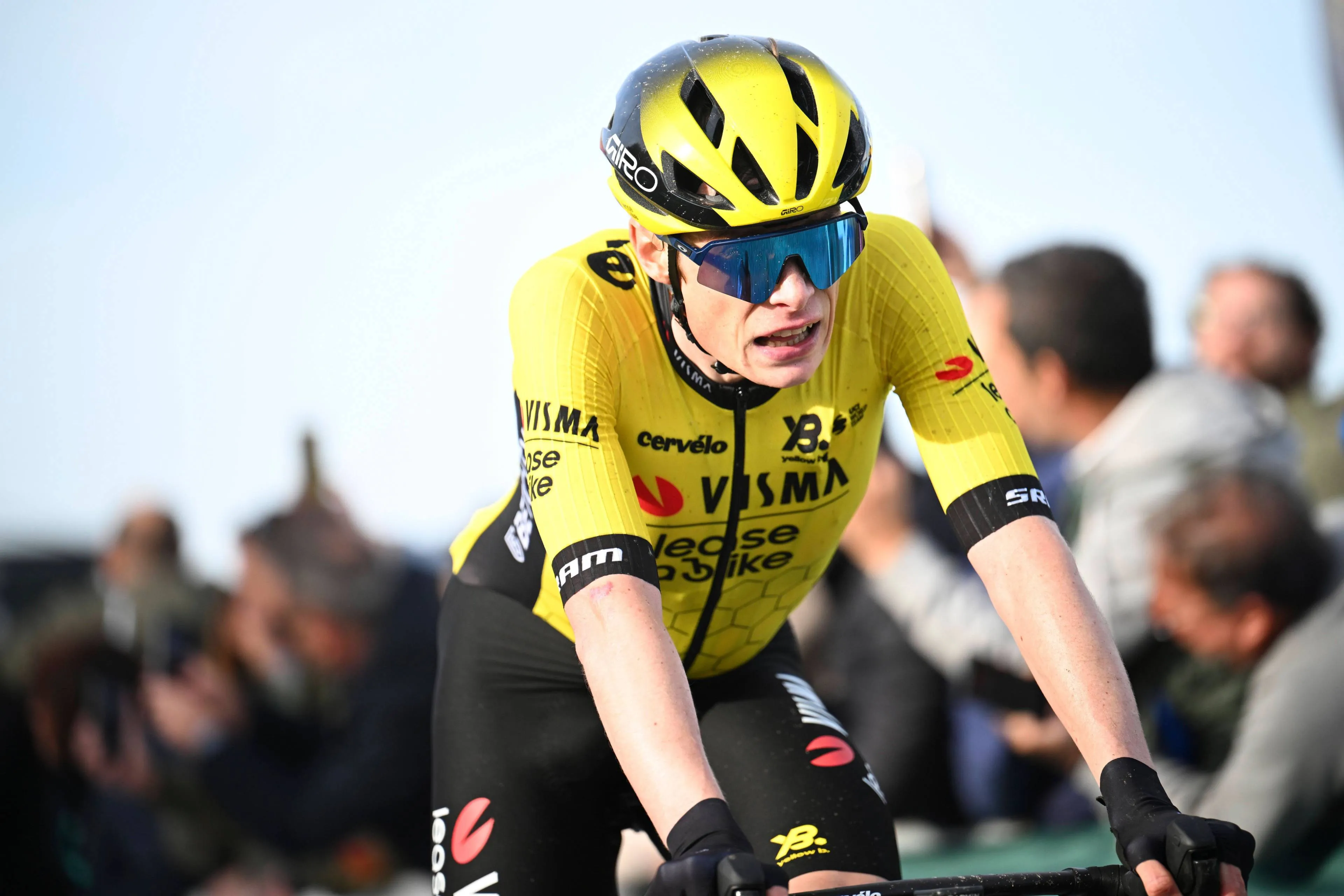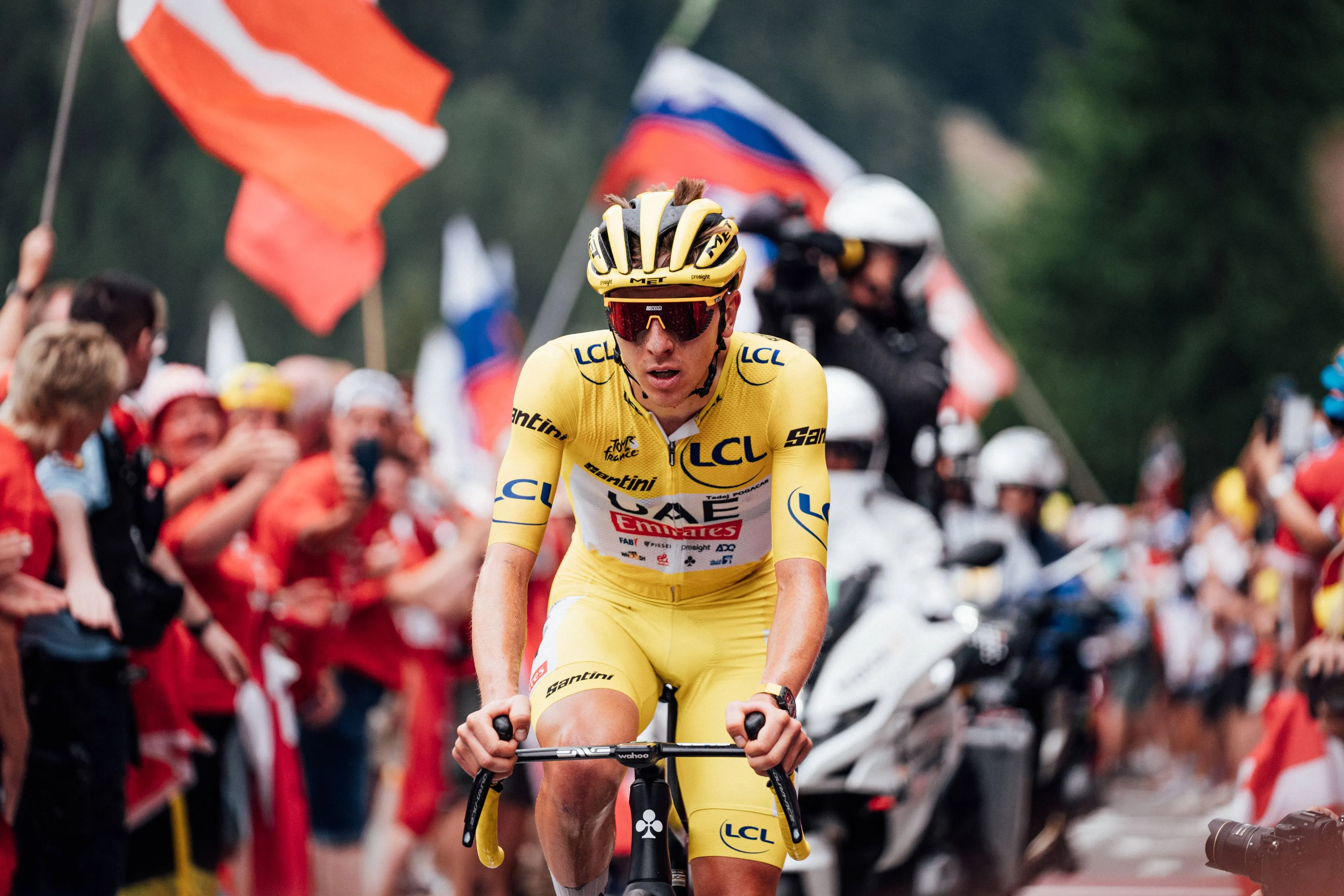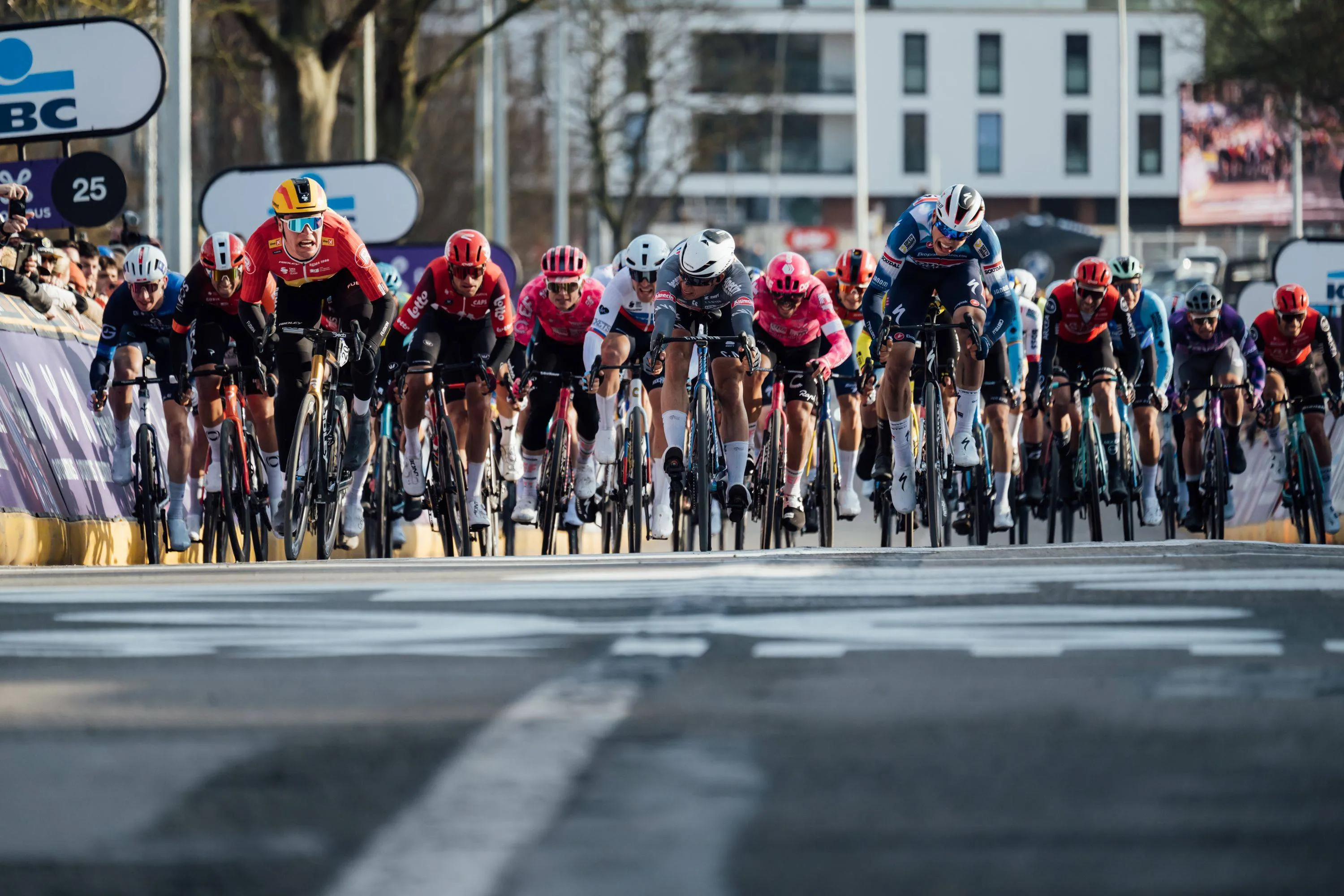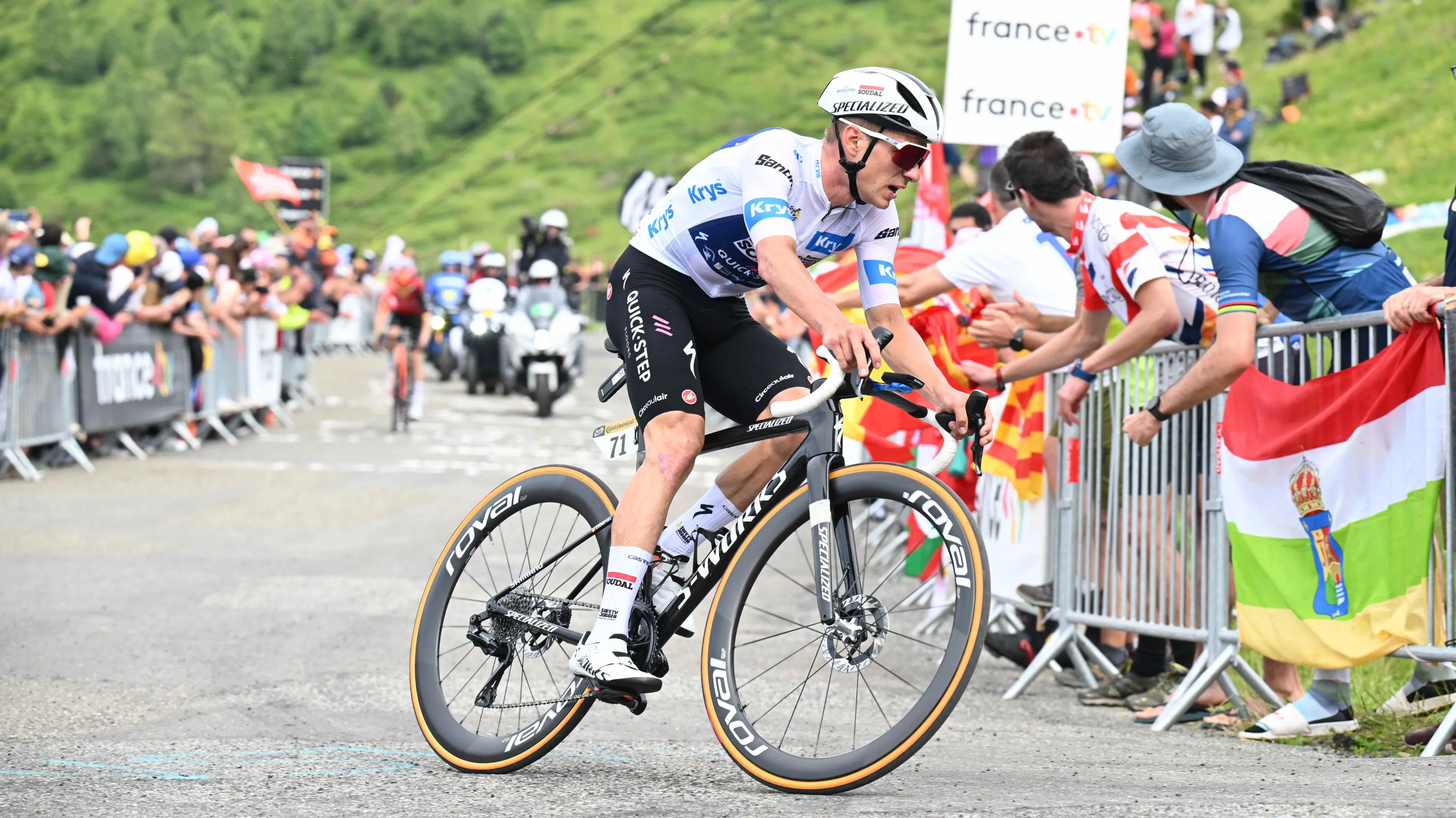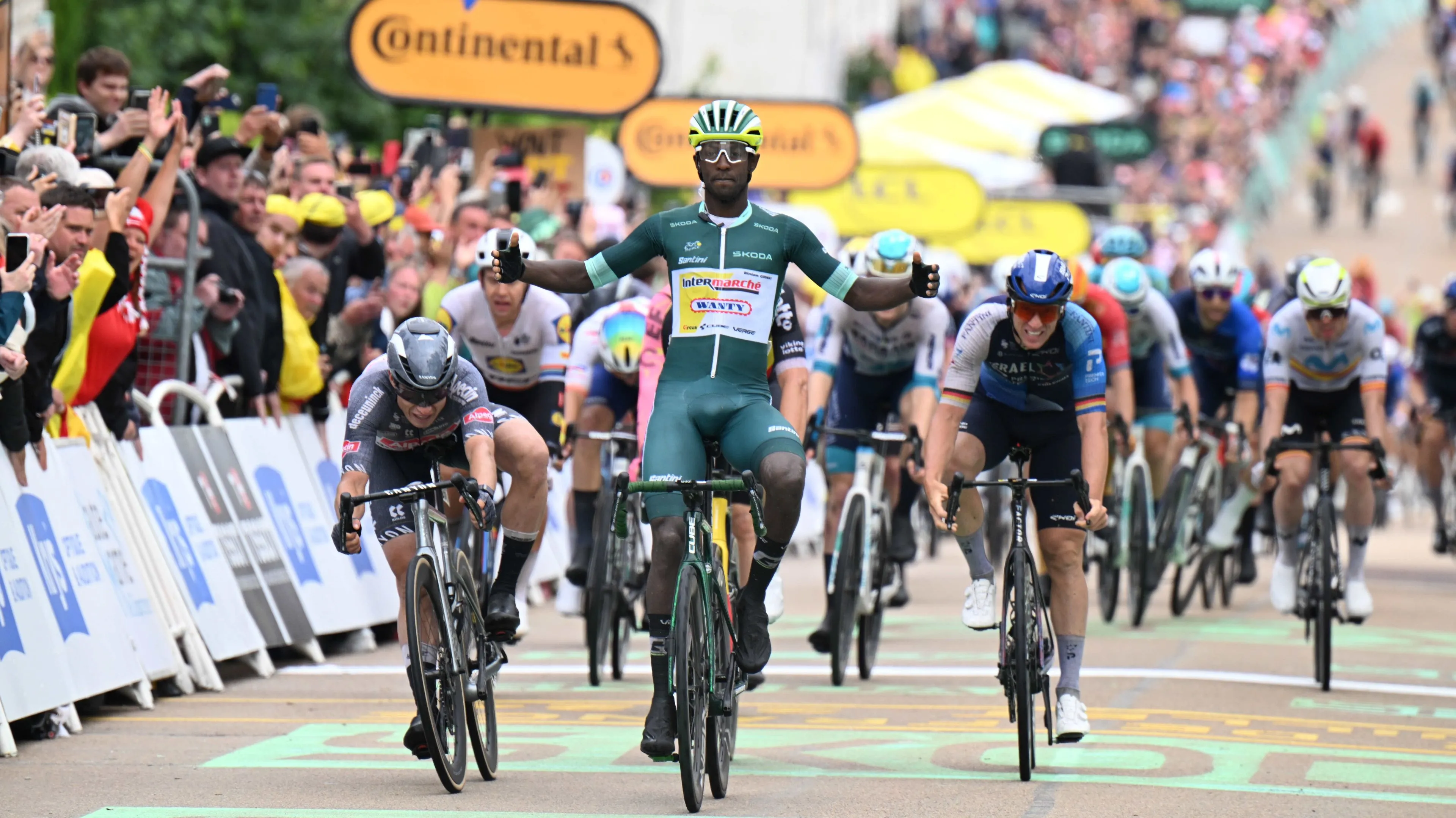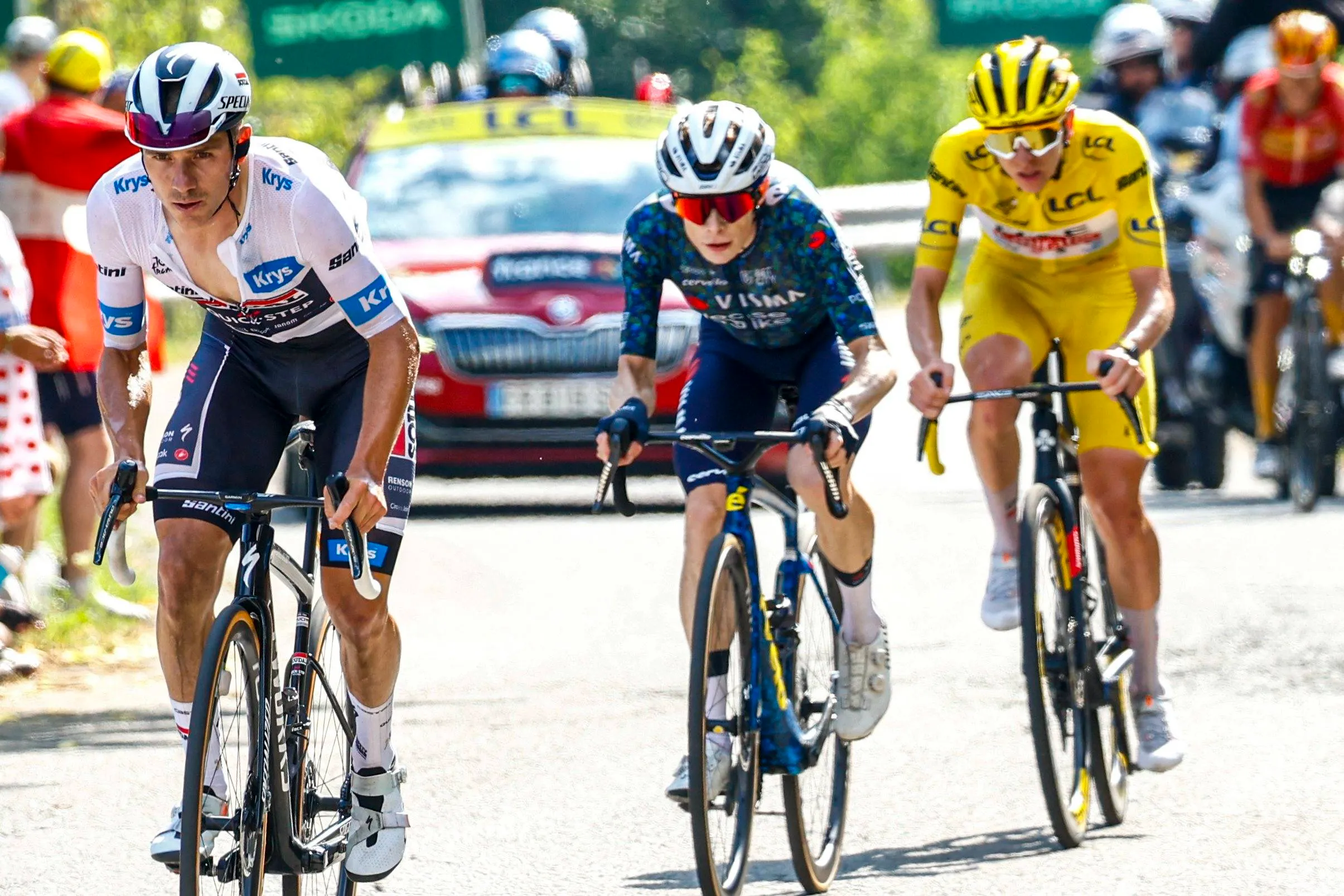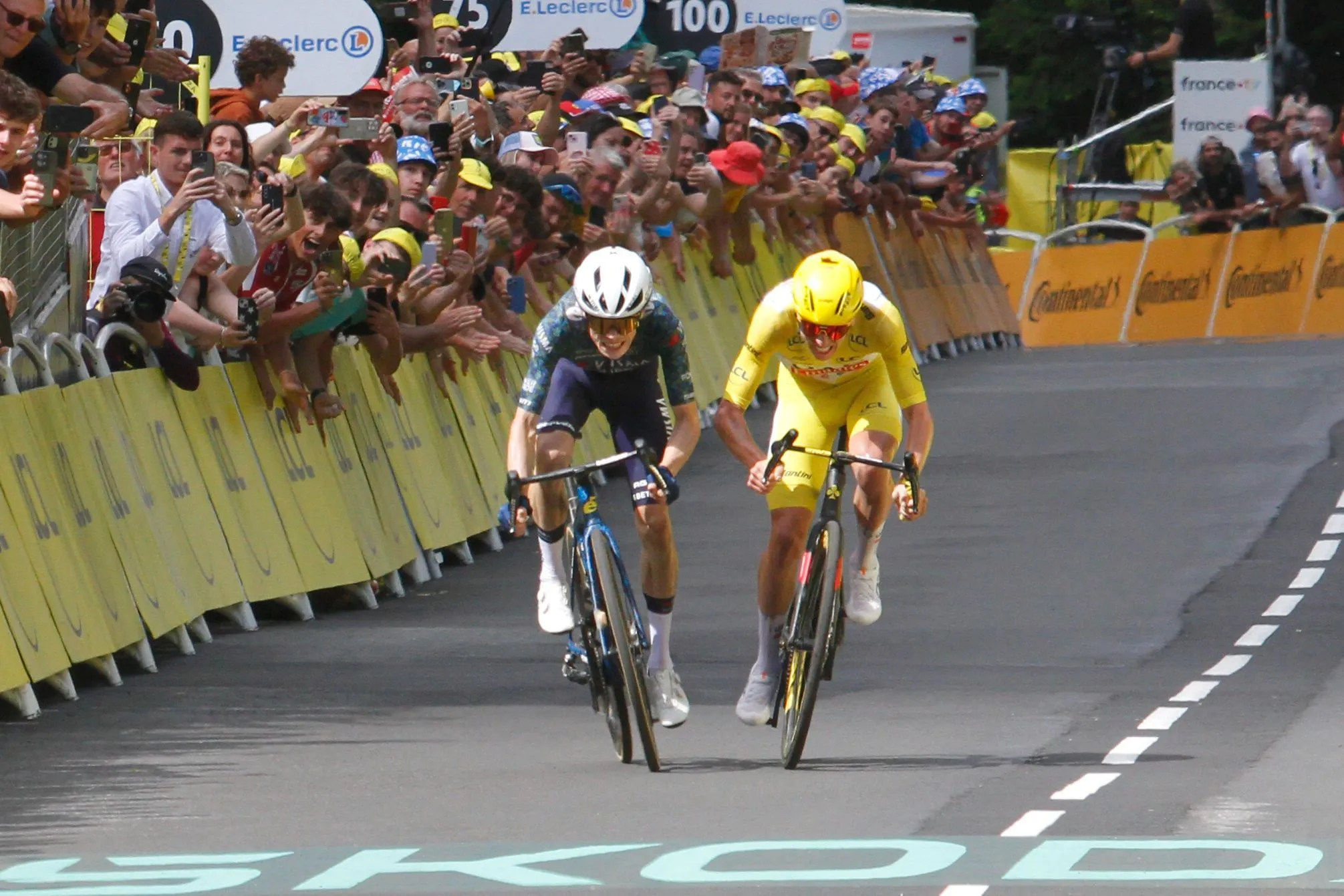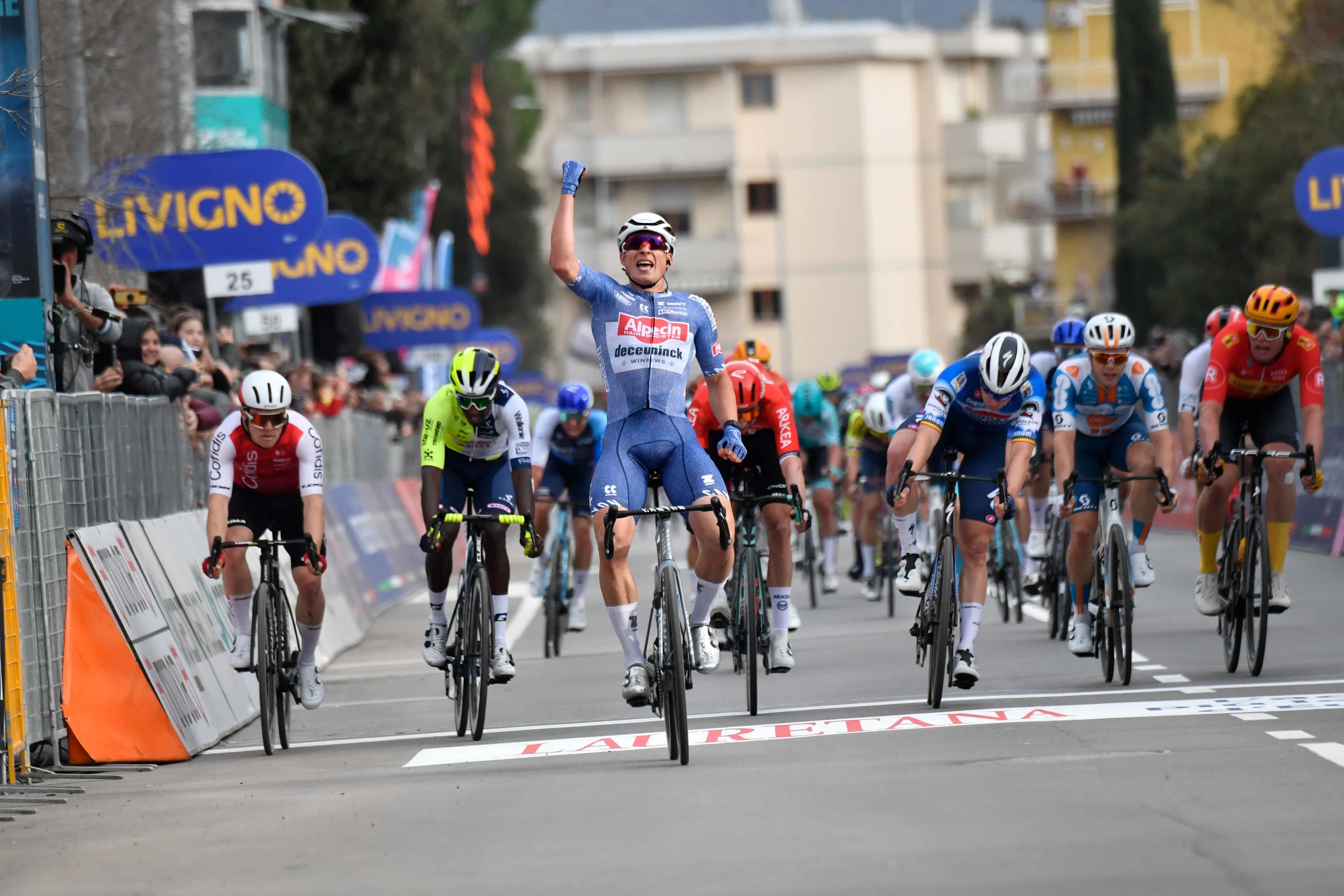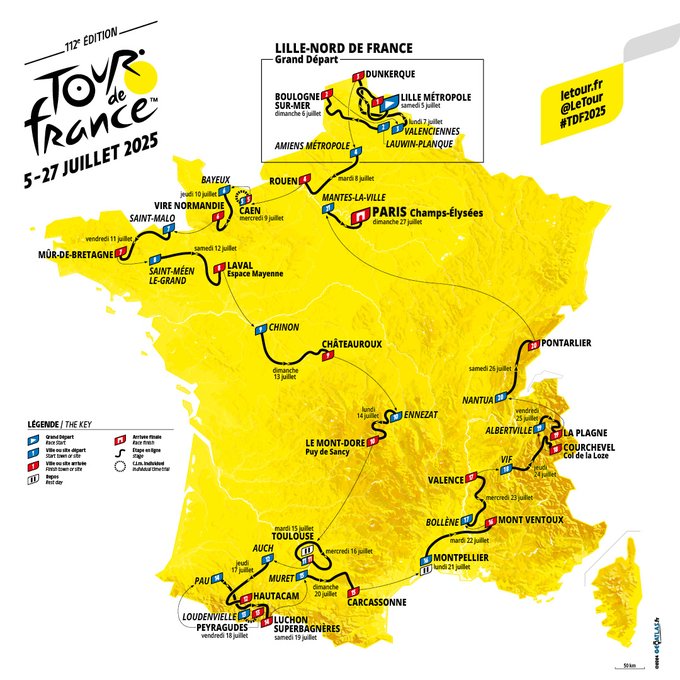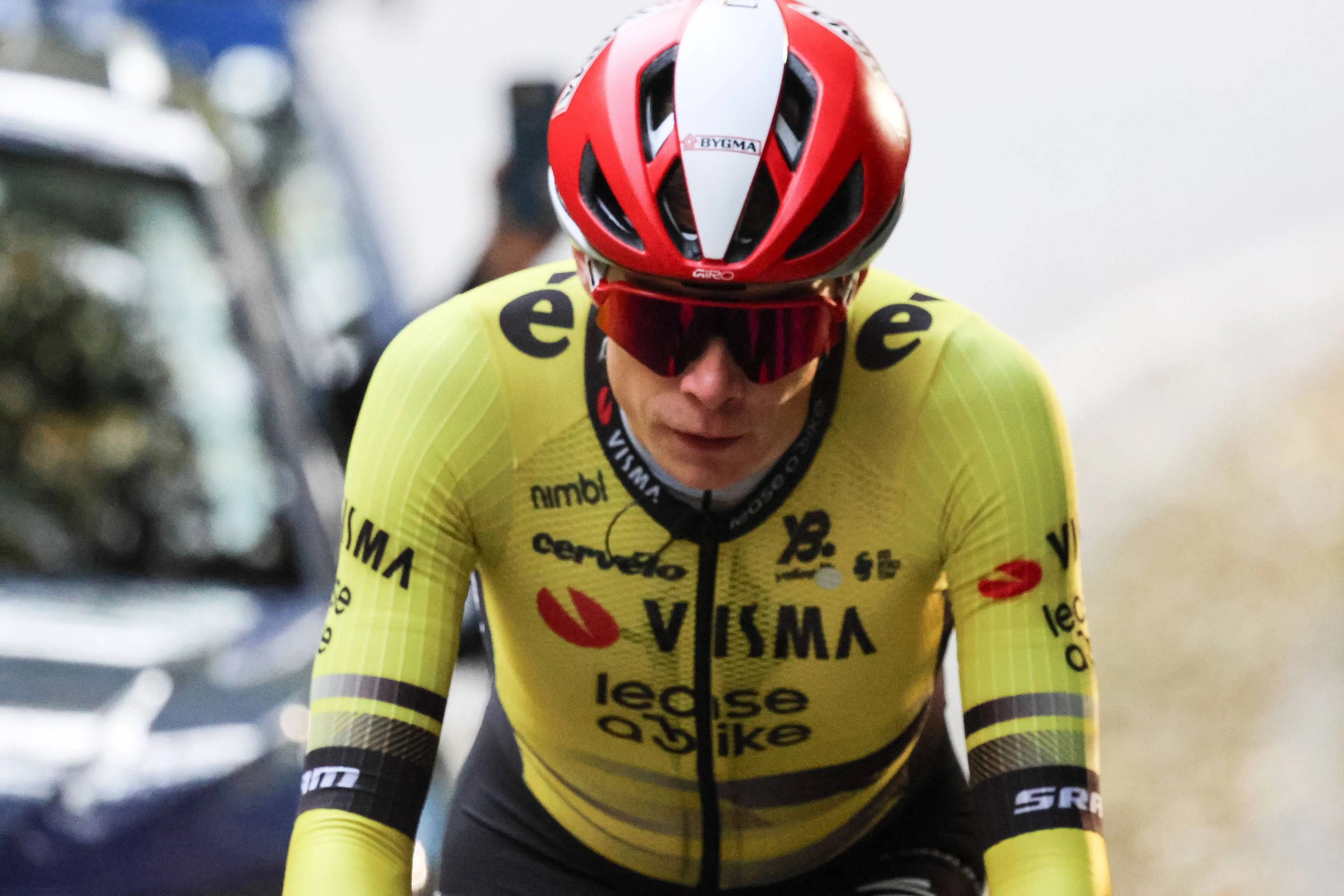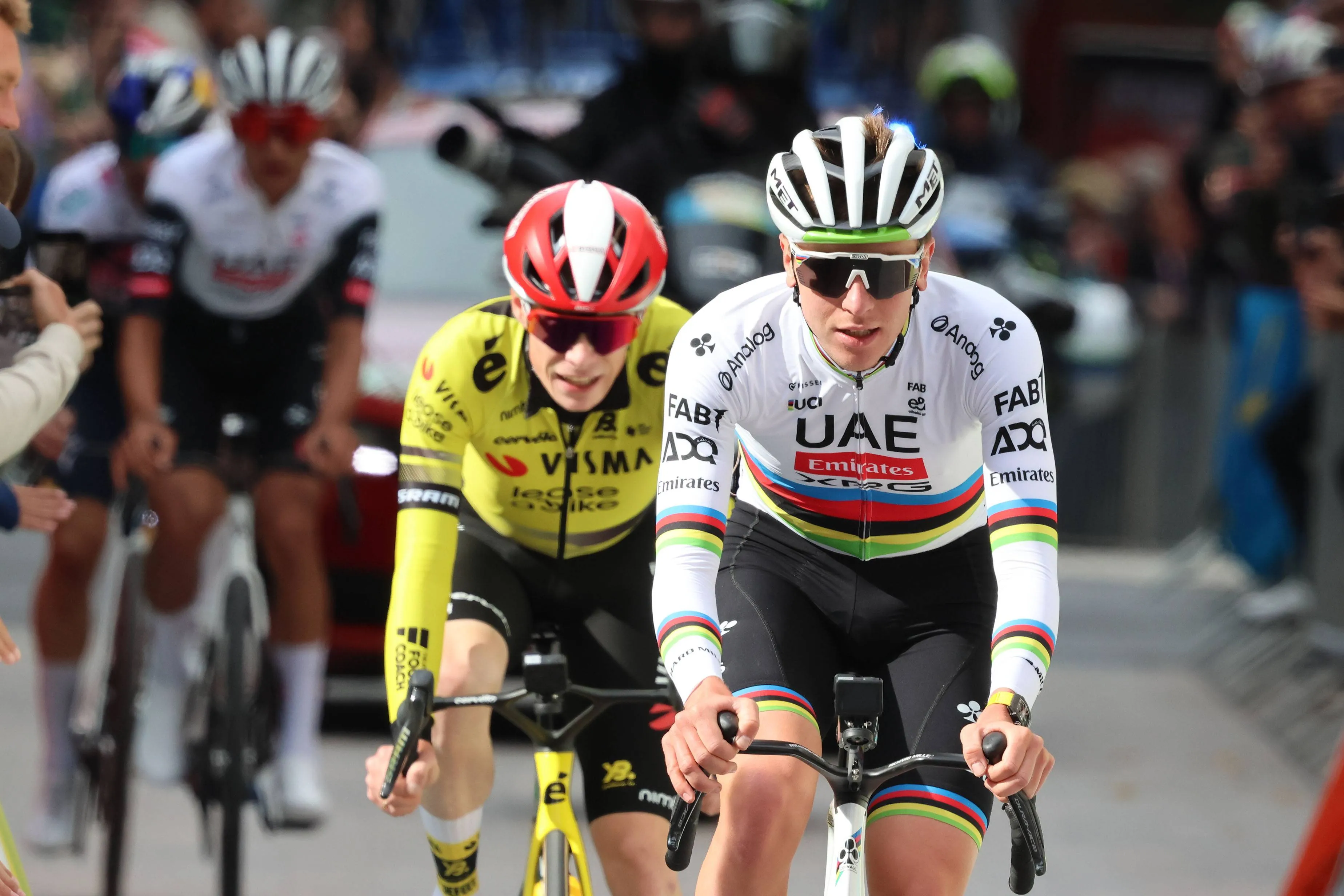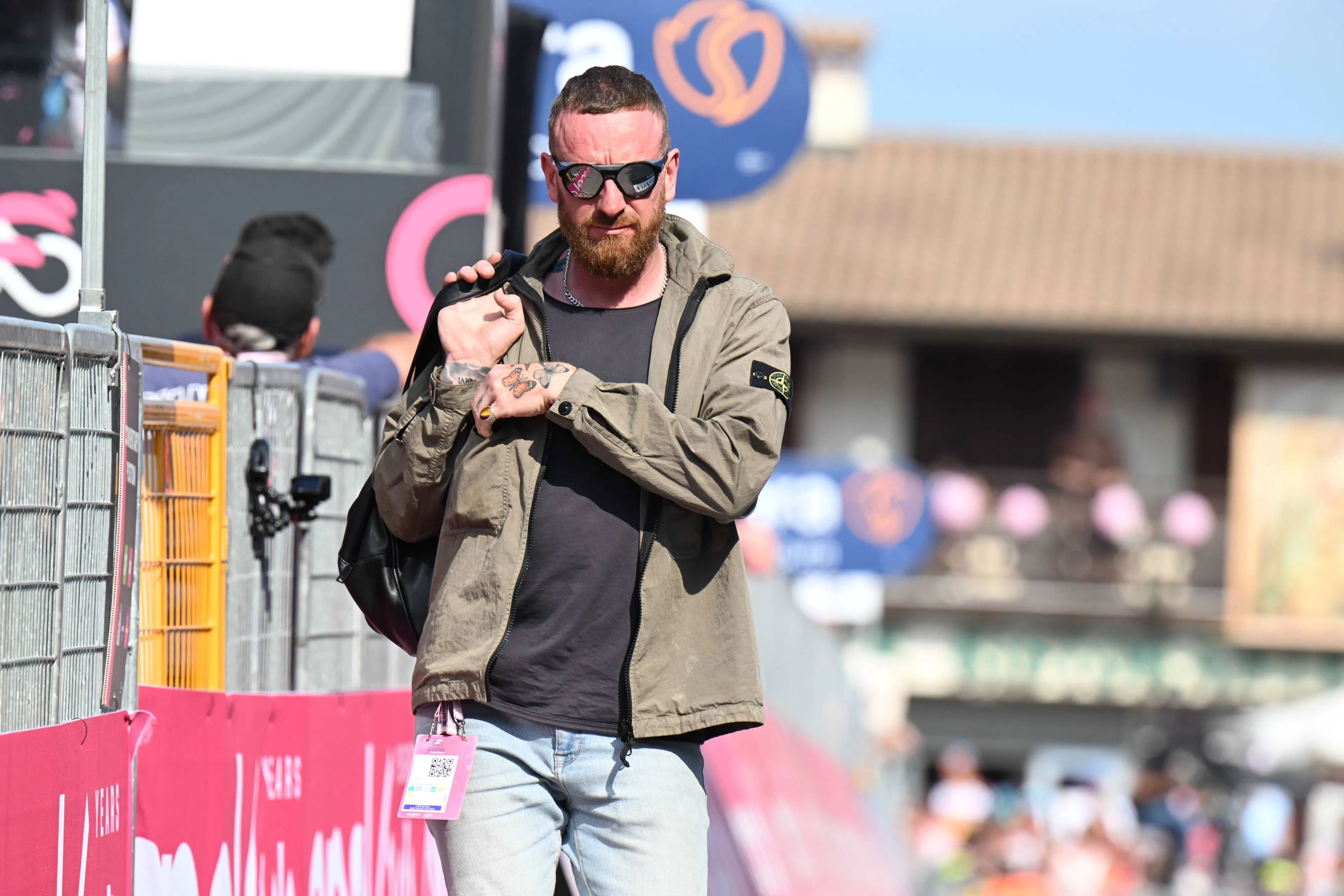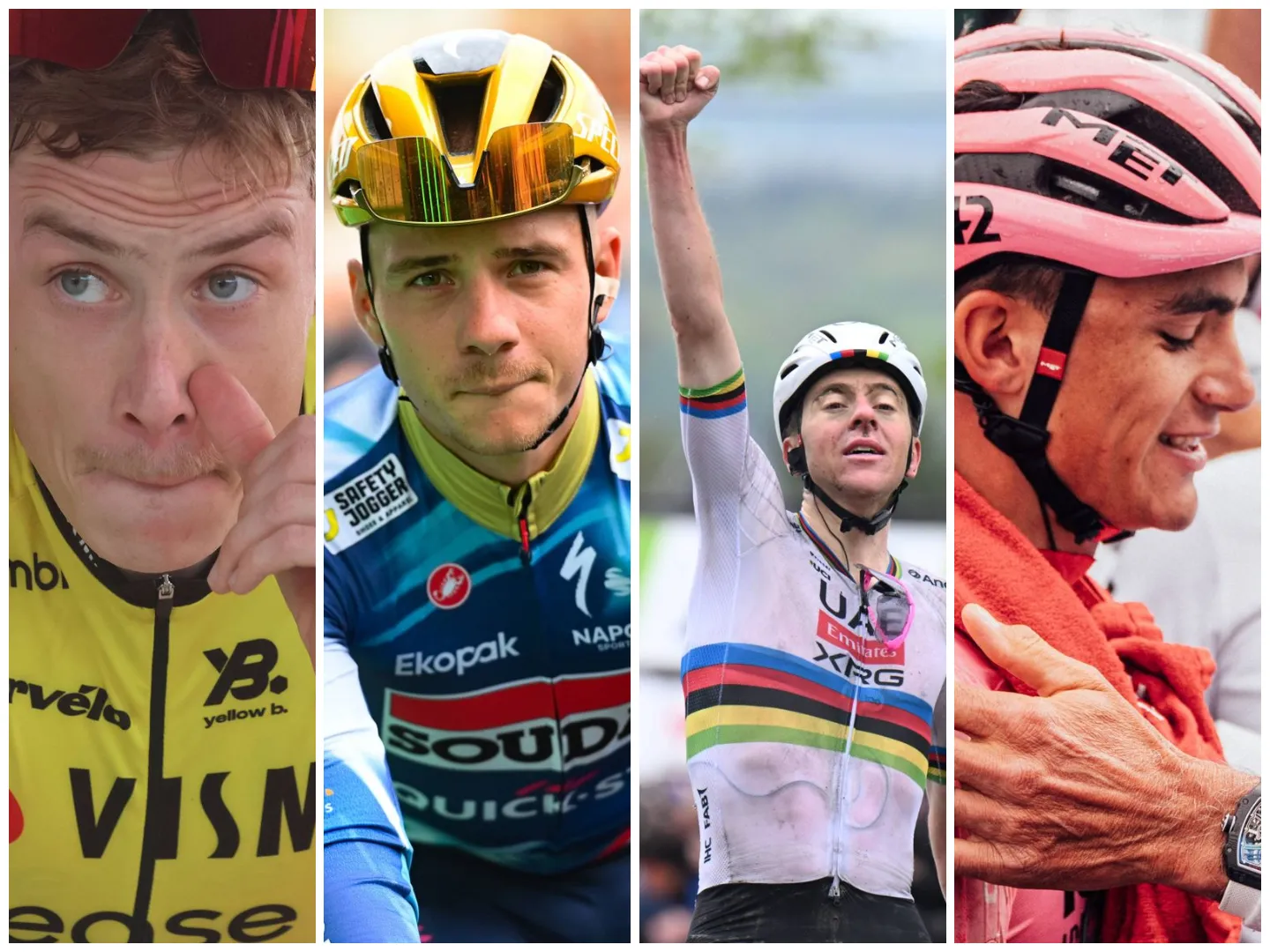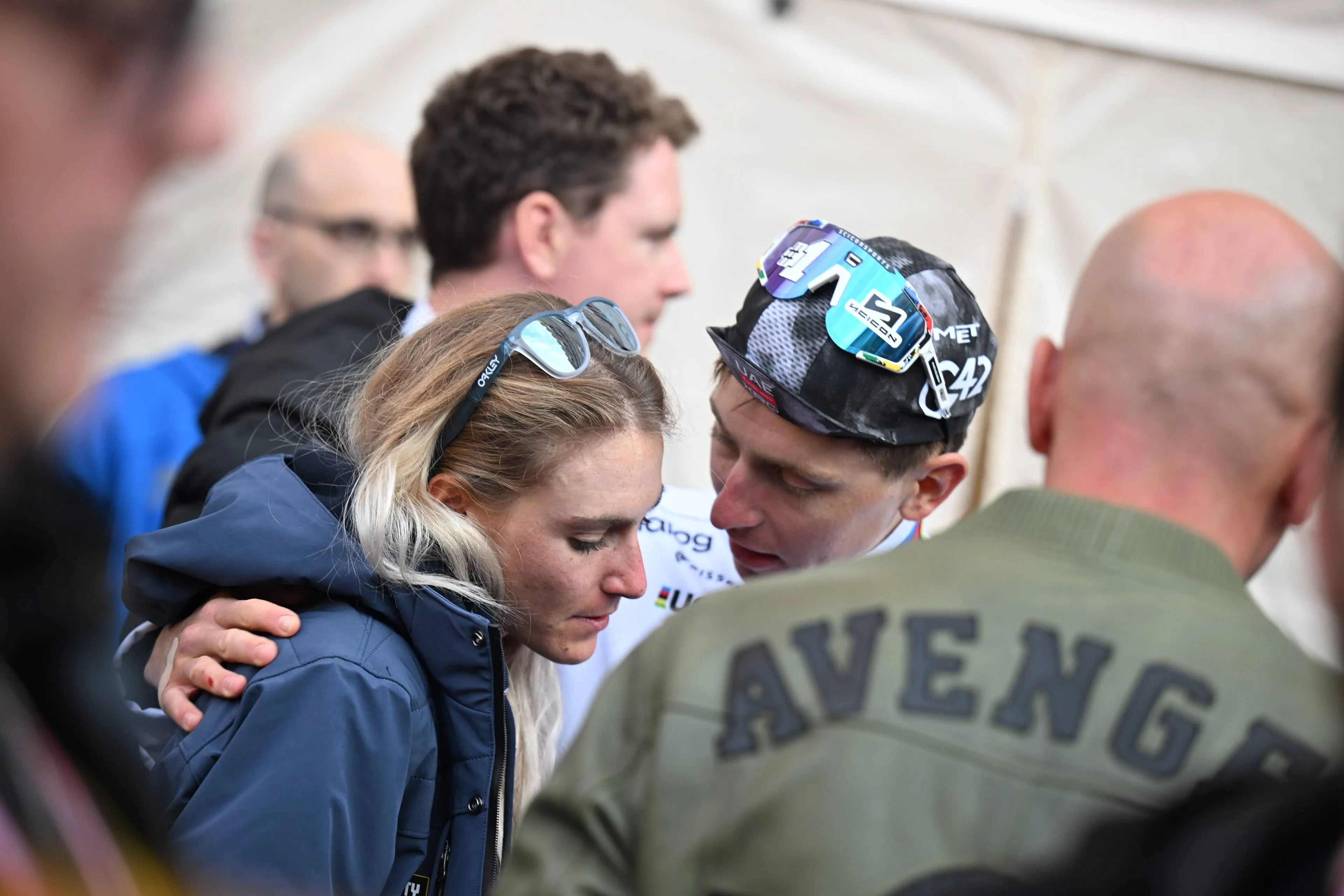🤩 Here it is, the official route of the #TDF2025! 🤩 Voici le parcours officiel du #TDF2025 !
Profiles & Route Tour de France 2025 - Mont Ventoux, Col de la Loze, Mountain Time-Trial, Cobbles...
CyclingWednesday, 02 July 2025 at 10:13
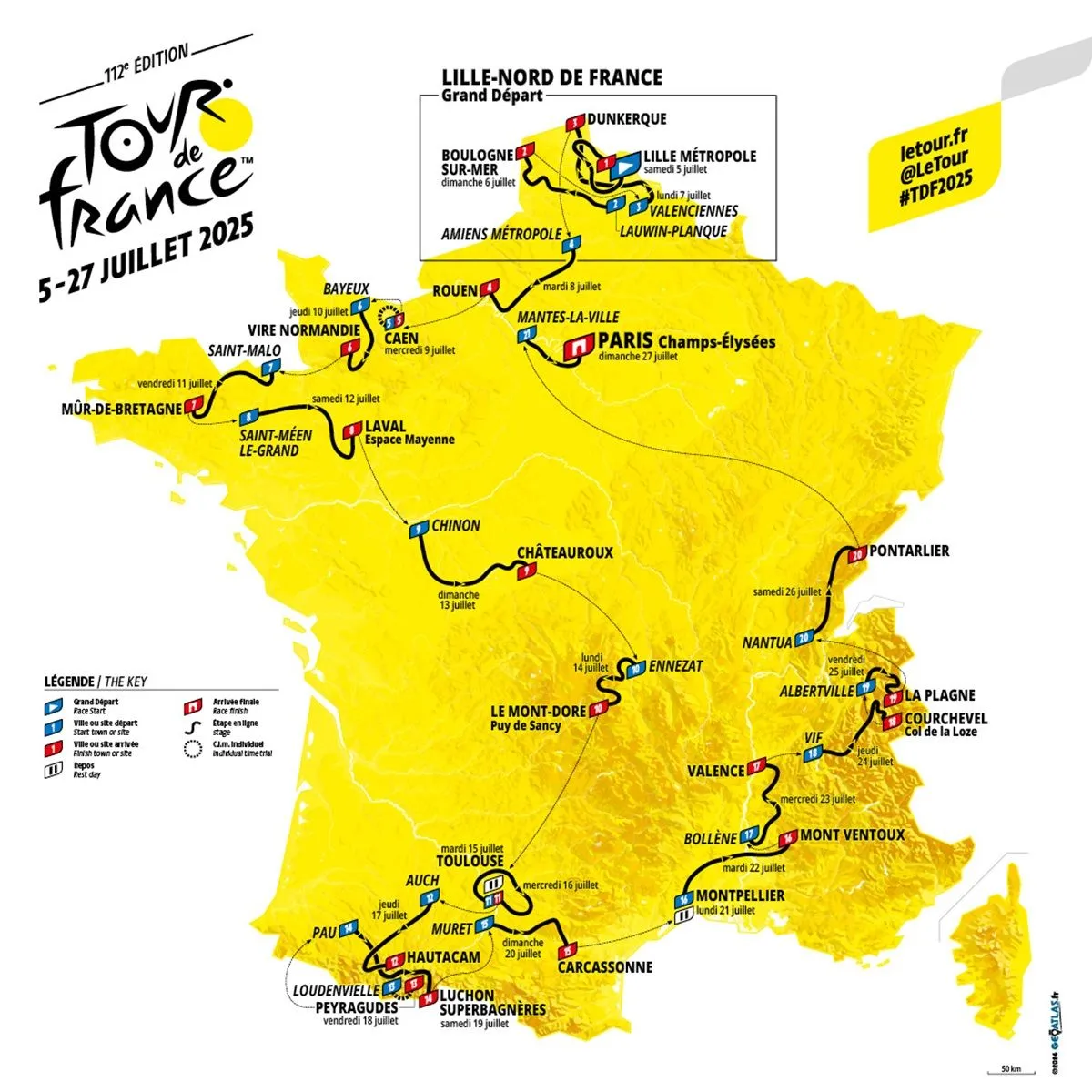
The 2025 Tour de France will be the biggest and most important race of the season and will be taking place between the 5th and 27th of July. It is the sport's most important event and every year it delivers memorable moments. We take a look at it's profiles.
The 21 stages were revealed on the 29th of October in Paris and it is a route that begins in the Hauts-de-France region, the northwestern tip of the country, with a few stages for the sprinters and classics riders. All the way into stage 11 the fast and powerful men will have their opportunities, before the race finally enters the mountains.
Stages 12, 13 and 14 will take place in the Pyrenees including a summit finish in Hautacam, a mountain time-trial in Peyragudes and another mountaintop finish in Superbagnères. The final week will have the return of the famous Mont Ventoux on stage 16 and two stages in the Alps with finales at the Col de la Loze and La Plagne - before a return to Paris.
Read also
Stage 1: Lille - Lille
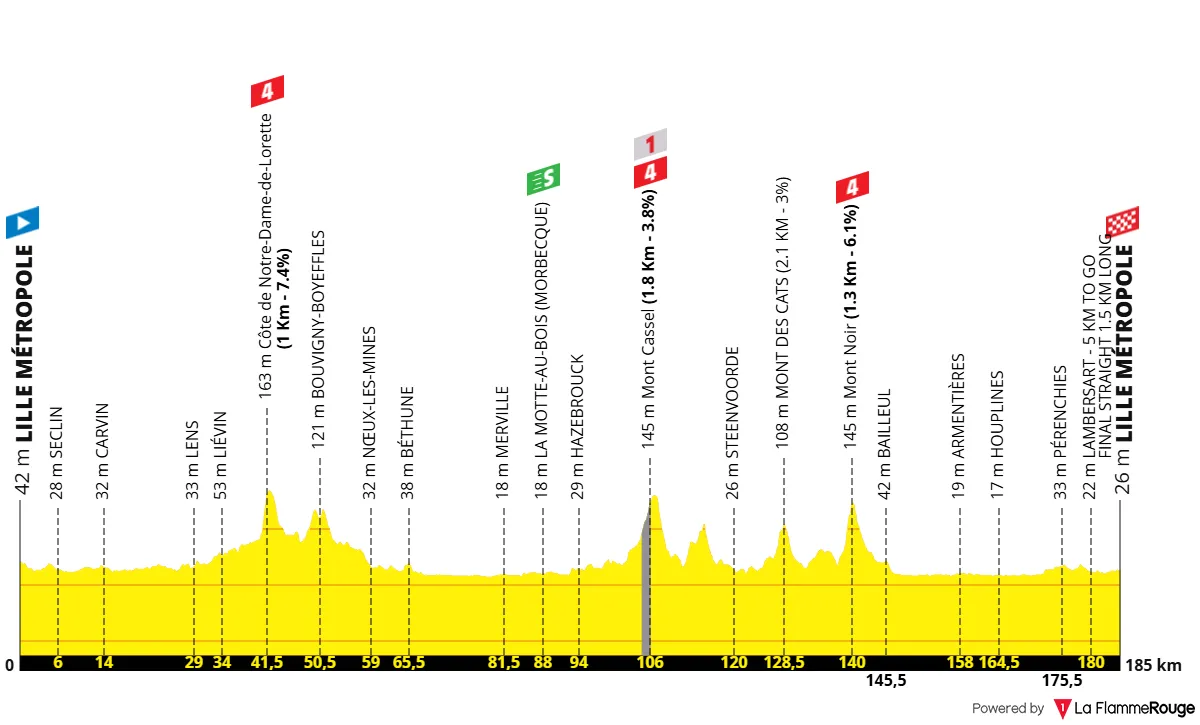
Stage 1: Lille - Lille, 185.3 kilometers
The race starts off with a flat stage in Lille where the sprinters will have the opportunity of taking the first yellow jersey for the first time in several years. The riders will have three fourth-category climbs where they can fight for the first KOM jersey and one of them will be the famous cobblestones of Mont Cassel - usually used in the 4 Jours de Dunkerque.
On this day however neither the climbs or the early intermediate sprint should have an effect on the outcome of the day, but instead everyone will be saving their legs towards the final hours of racing and what should be a fast and furious finale back into Lille.
It will also be rather technical. The final kilometer not necessarily, as we have a 1.5-kilomete rlong finishing straight, but from 4.5 to 1.5 there will be a few tricky corners and this being the first - and an easy - day means that most will arrive very fresh, speeds will be very high and GC teams will all be looking to enter the section in front. In the end it will be a flat sprint and nothing should come in the way of the pure specialists.
Read also
Stage 2: Lauwin-Planque - Boulogne-sur-Mer
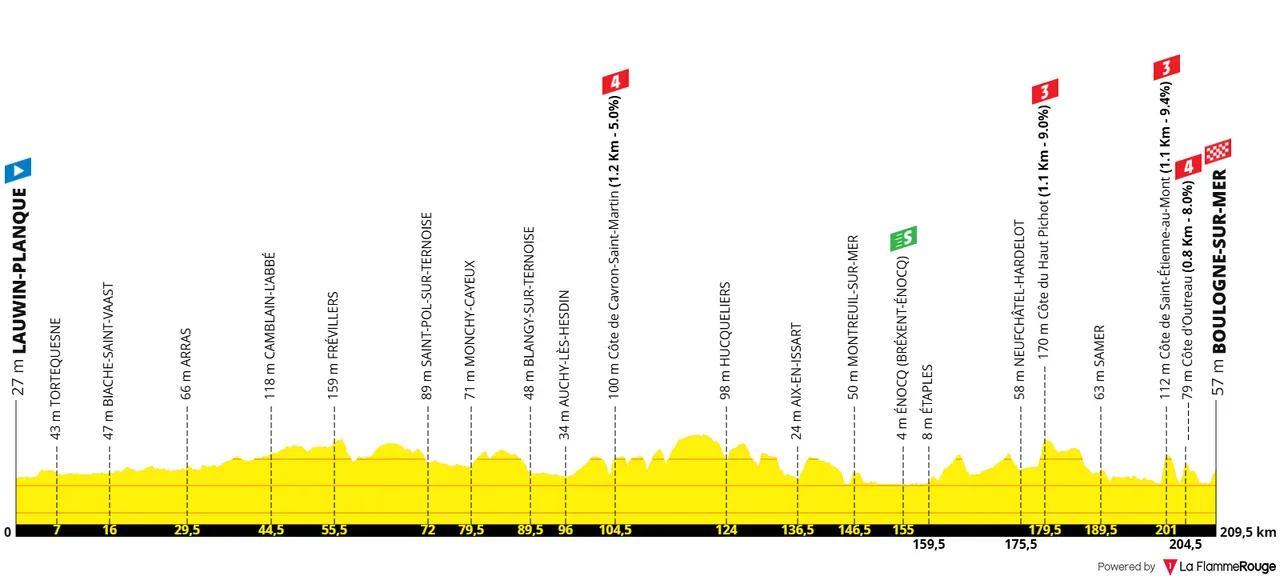
Stage 2: Lauwin-Planque - Boulogne-sur-Mer, 209.8 kilometers
The second stage of the race should have a sprint finale in Boulogne-sur-Mer, although a few sprinters will definitely be dropped by the steep climbs that antecede it. 209 kilometers in distance, there will be no long or too difficult climbs, but the battles for positioning and expected attacks will see a very fast finale.
With 30 kilometers to go there is a 1.1-kilometer long climb at 9%, and then a climb of similar charactheristics summiting with only 8 kilometers to go. Here we can absolutely see attacks, as we quickly descend, and then have another very explosive 800-meter ascent at 8% that ends with only 4 kilometers to go. This will be dangerous over splits and attacks can succeed as it will be very hard to organize any chase afterwards. The descent into Boulogne-sur-Mer will be very fast and the riders will reach the final climb very quickly.
The final ramp to the line is 1.2 kilometers long at 3.8%. It's start will go almost to 10% meaning we can see attacks to then try and survive to the line... But likely some teams will be able to control the finale and then lead to a brutal uphill sprint.
Read also
Stage 3: Valenciennes - Dunkerque
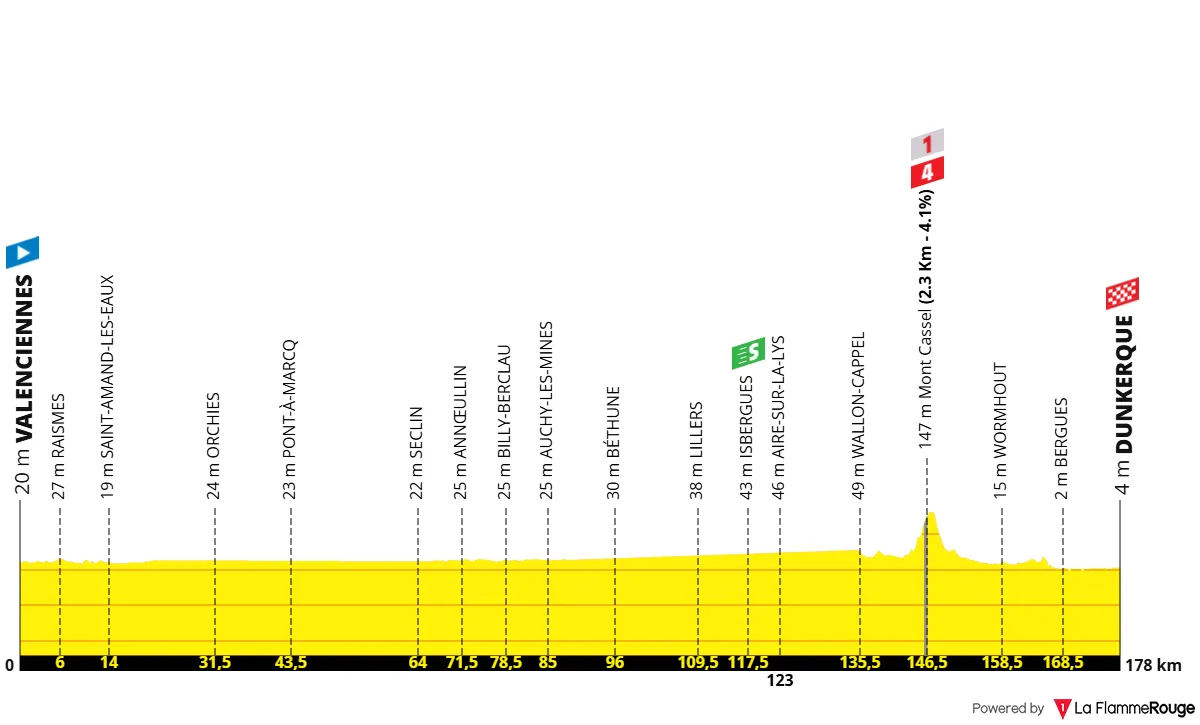
Stage 3: Valenciennes - Dunkerque, 178.7 kilometers
The third day of racing will take place between Valenciennes and Dunkerque and will be another day for the sprinters, to close out the Grand Depart on the Hauts-de-France region. There is not much to analyze from the day, it is almost a pan-flat day, with the exception of a very small climb.
That will be... Mont Cassel, once again. Like in stage 1, the peloton will go up the cobbled ascent, but it won't be hard enough to create serious damage. All focus is on the final sprint and it will be a very fast one with great certainty.
The final 30 kilometers are almost on a complete straight line heading into the coastal city and then we turn into a smaller road with 1.5 kilometers to go. It is not a technical finale and should be a very fast one where timing will be crucial.
Read also
Stage 4: Amiens - Rouen
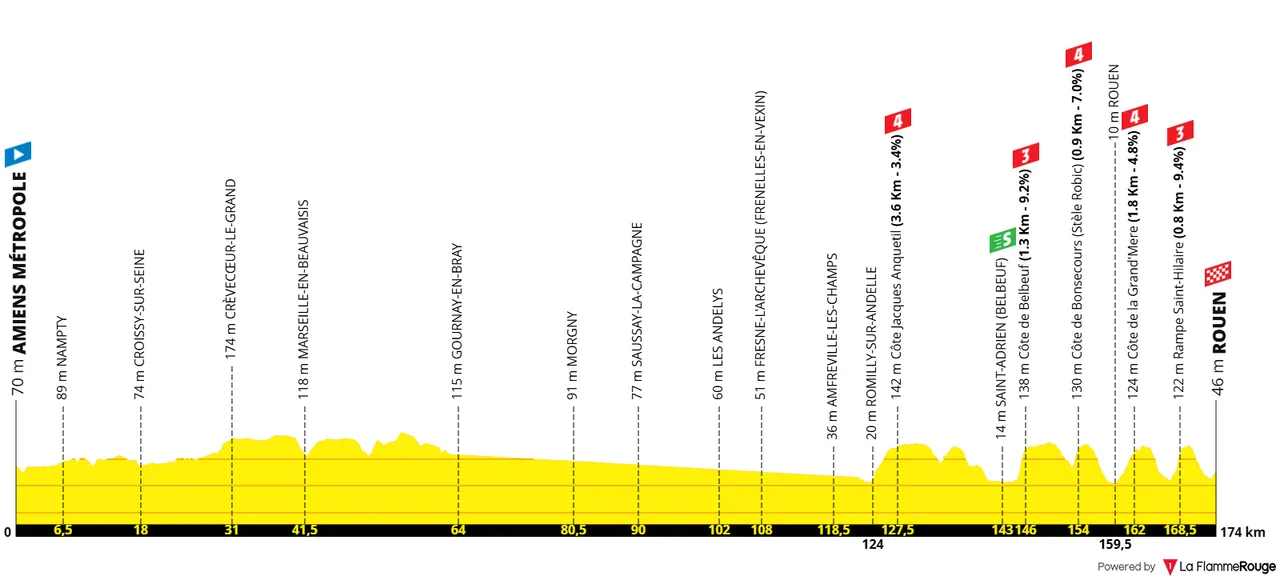
Stage 4: Amiens Métropolee - Rouen, 174.2 kilometers
The second hilltop finish of the race will take place in Rouen and it's a thrilling explosive finale. The final 21 kilometers have four ascents, the final big one with a mere 5 kilometers to go which is 900 meters long at over 10%. A completely flat first two thirds of the day, which will lead to a very fast finale certainly where sprinters, classics riders and GC riders will all be giving their best.
The final 30 kilometers are tricky... 1.3Km at 9.2% (28Km to go), 900 meters at 7% (20Km to go), 1.8Km at 4.8% (12Km to go) and 800 meters at 9.1% (5Km to go) can be decisive to the outcome of the stage. In reality, it will all be a slow-building leadout until the final one where the ramps go up to 17%. It's so difficult and close to the finish with a quick downhill inbetween that any attack can succeed.
There is a plateau after the summit which means that attacks can also come after the summit. GC riders will need to be as strong as possible and will swarm the front, but a few classics riders can attack both during and after the ascent. If anyone has a gap into the descent it'll be very hard to bring him back.
If it does happen, most likely it will be because of a slight uphill ramp that'll come before the finish. The final meters are flat, but it's not a pure sprint.
Read also
Stage 5 (ITT): Caen - Caen
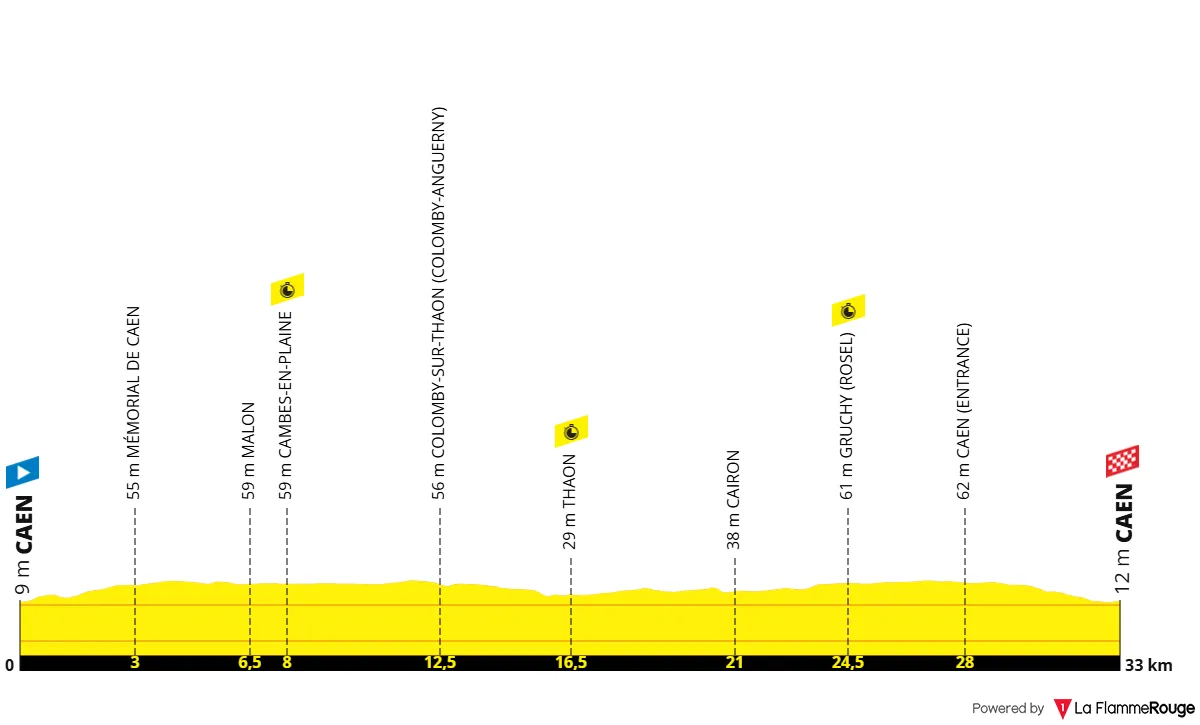
Stage 5: Caen - Caen, 33 kilometers
The race's sole flat time-trial and it comes in very early on, in what should be the first serious GC battle of the race. In Caen, the GC riders will have 33 kilometers to make the difference.
A very simple out-and-back effort into town, over 30 minutes in duration which won't be easy for all riders. By the end of the day there will be meaningful gaps in the overall classification and perhaps less tension in the following days of the race.
Read also
Stage 6: Bayeux - Vire
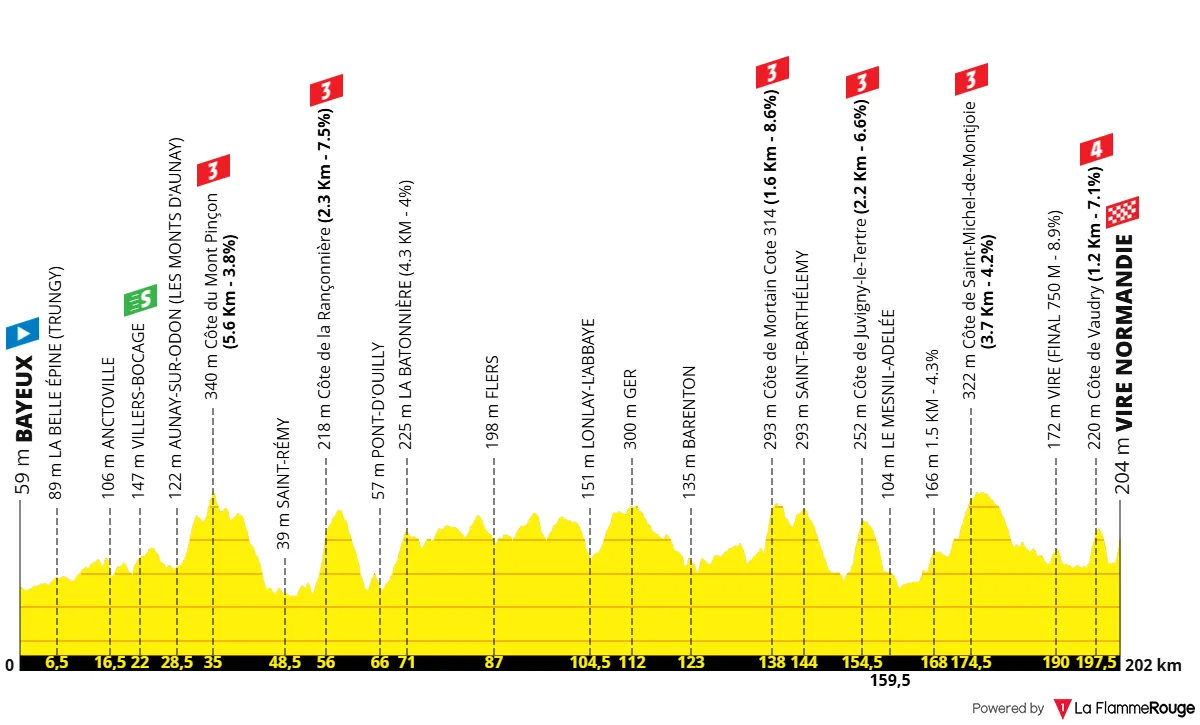
Stage 6: Bayeux - Vire Normandie, 201.8 kilometers
The third punchy finish of the first week, in Normandie now. It's a tricky first week to the Tour and it keeps delivering profiles that should see quite an exciting finale. It's another 200+ stage with an early intermediate sprint that could set up quite a lot of action. Later on not only the sprinters will be in action, but also the GC riders and the classics specialists - even if a breakaway can also potentially succeed on the day.
With 11.5 kilometers to go there is a 750-meter long ramp at 9% that will really kick off the finale. Right after this, teams will continue to push hard to remain in the head of the peloton up to the next ascent where we may seriously see a few dangerous attacks. 1.2 kilometers at 7.2% with 4 kilometers to go and then
A very quick descent and flat section lead into the final 700 meters ramp up at 10% towards the finish line, which may see a mix of climbers, classics riders and sprinters fight for the win.
Read also
Stage 7: Saint-Malo - Mur-de-Bretagne
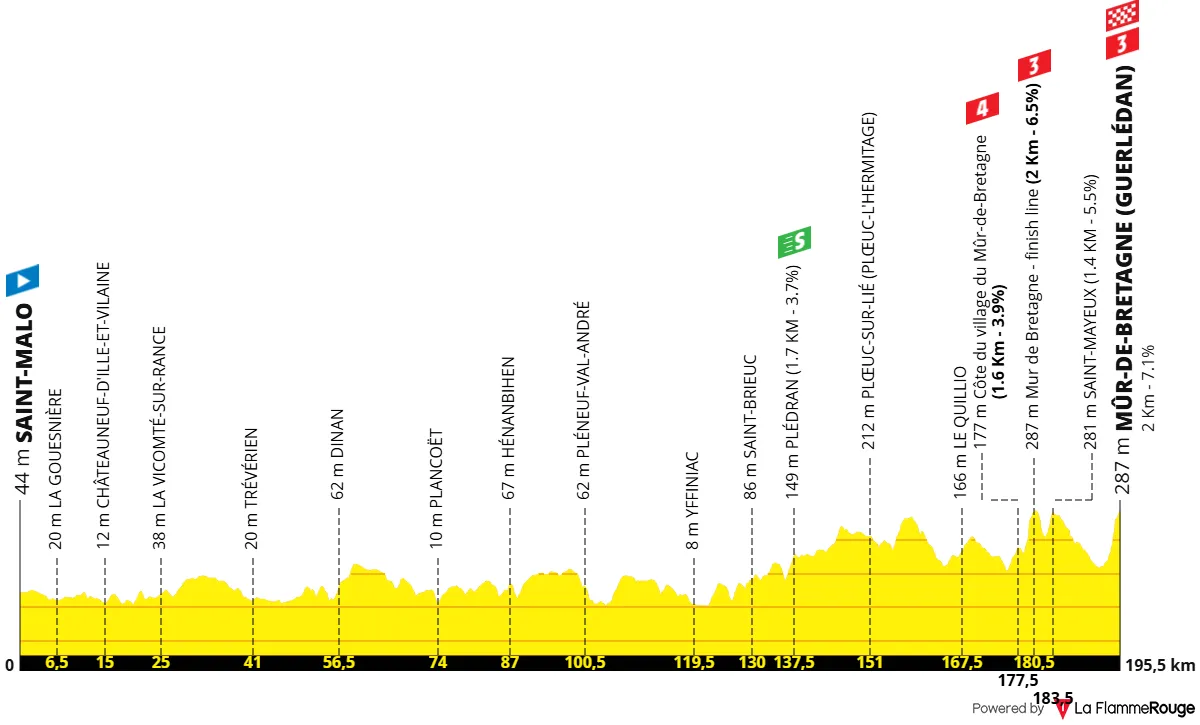
Stage 7: Saint-Malo - Mûr-de-Bretagne, 196.7 kilometers
The fourth explosive hilltop finish of the week, in the very famous Mur-de-Bretagne. Overall it's a day where most will look to save themselves throughout the day and then go all-out in the leadout to the final ascent - which will not be technical.
With 15.5 kilometers to go the riders will go up the Mur for the first time, and then have a second hilltop right after. But then afterwards, mostly downhill, the run-up to the final hilltop finish will be very fast and furious with everyone using their men to enter the steep ramps in the head of the peloton.
A day where riders will save it all for the final 2 kilometers which average 6.9%. The first kilometers averages 10% in a straight road, and then the gradient gradually gets easier which will make for a very difficult climb to manage.
Read also
Stage 8: Saint-Méen Le Grand - Laval
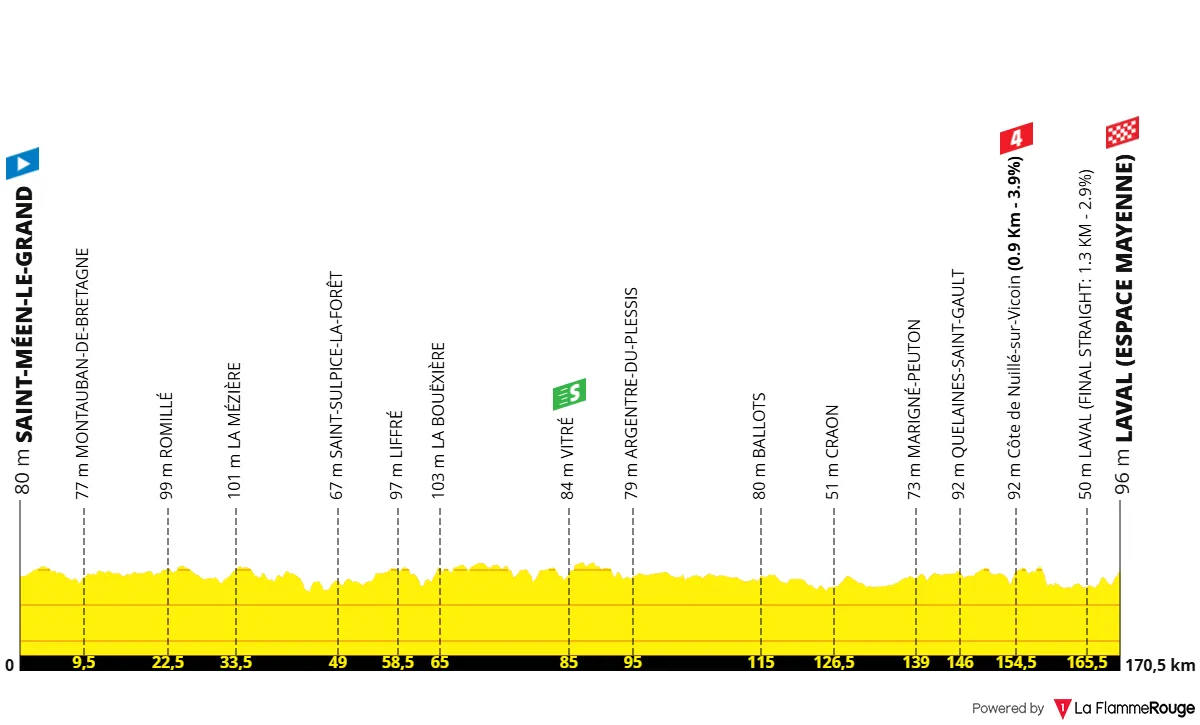
Stage 8: Saint-Méen-le-Grand - Laval, 171.1 kilometers
Another stage for the pure sprinters, a transition day through the French territory ending in the city of Laval. A transition day without anything serious to analyze, as there will be no climbing whatsoever during the day, but instead all eyes in the final sprint.
It won't be an easy one. The speed will be very high taking into consideration how there will be nothing throughout the day to fatigue the riders at a meaningful level. There will be a few roundabouts that'll stretch the peloton and then the last 1.3 kilometers have a slight uphill gradient.
It will make for an interesting sprint, not a pure one, but one where form and climbing legs may also be quite meaningful. All-in-all, the gradients won't likely be high enough to exclude anyone from contention.
Read also
Stage 9: Chinon - Chateauroux
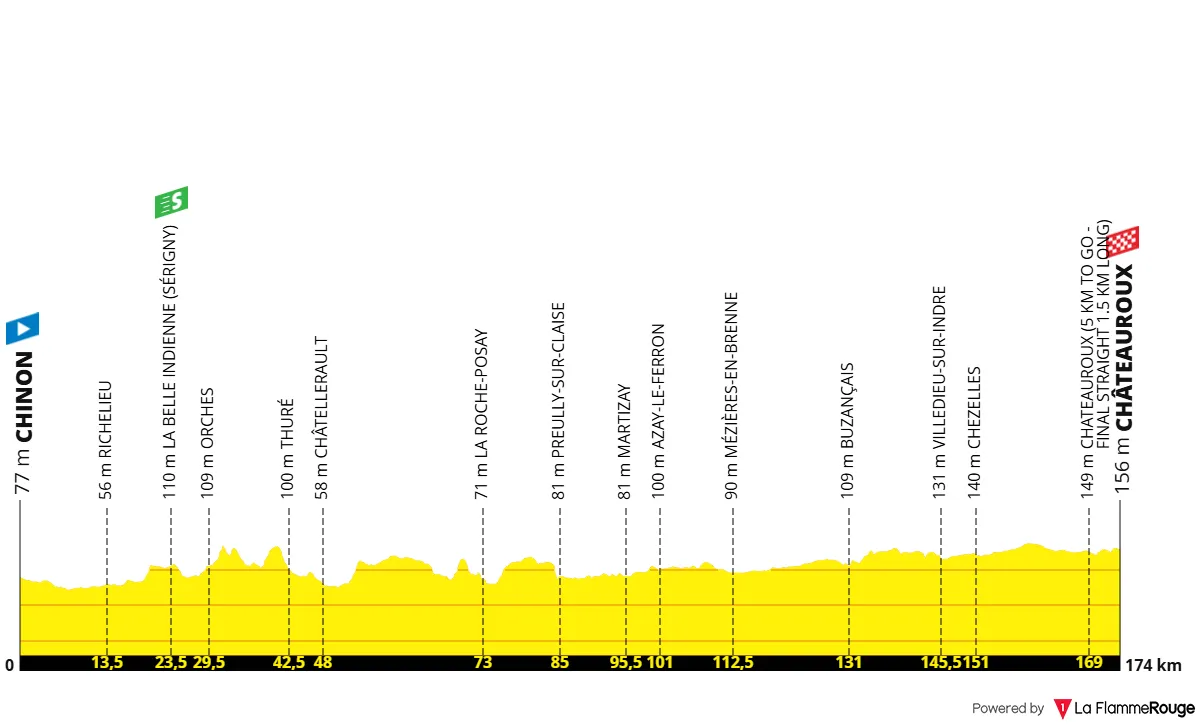
Stage 9: Chinon - Châteauroux, 174.1 kilometers
Stage 9 will take place between Chinon and the city of Chatearoux where the sprinters will have their final opportunity in the first week of the race. Again a relatively uneventful day when it comes to the selected route, but the riders won't mind having a calmer day.
The riders will cross the city during the final kilometers which may bring in some challenges in terms of road furniture, but map-wise the route is quite clear. With 2.2 and 1.5 kilometers to go there will be two 90-degree corners to stretch things out but the finishing straight is still long enough to regain positions ahead of what should be a pure bunch sprint.
Read also
Stage 10: Ennezat - Mont Dore-Puy de Sancy
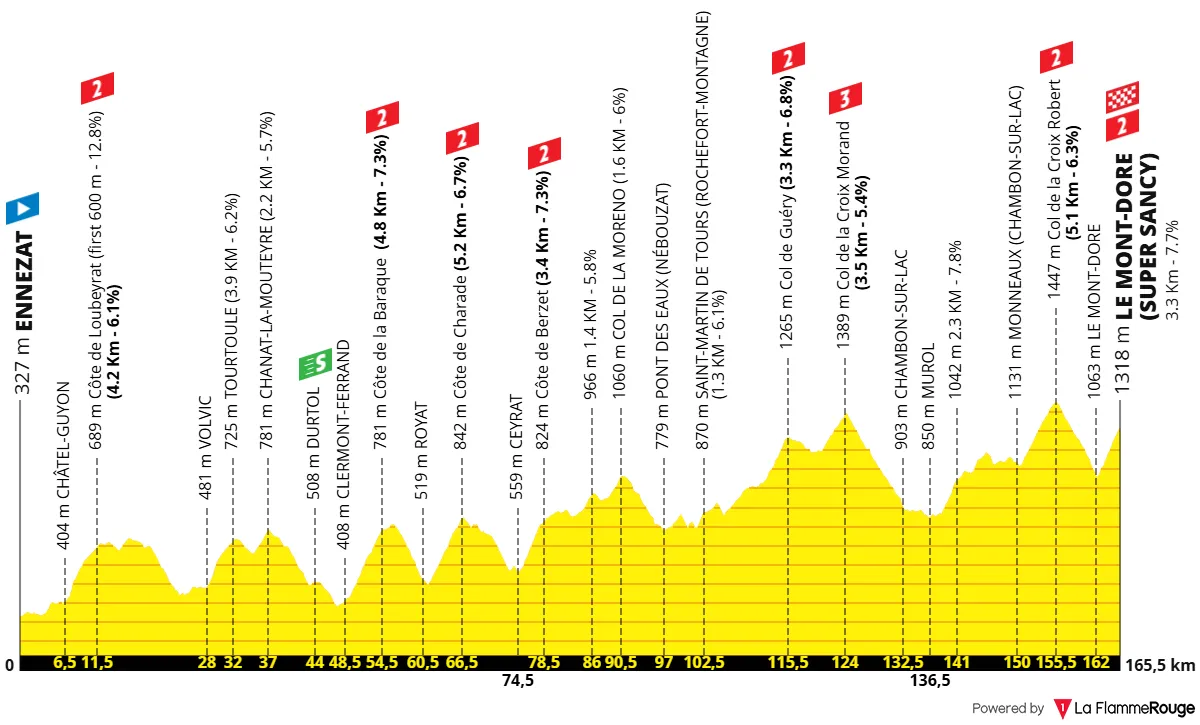
Stage 10: Ennezat - Le Mont-Dore (Super Sancy), 165.6 kilometers
On Bastille day we have a stage featuring 4400 meters of climbing with seven categorized climbing and a constant roller-coaster. A day for the classics riders (if a breakaway is to succeed) but likely a GC fight as well, and a lot can happen here and there are plenty traps. Even if the GC riders resist the chaotic terrain, the final 3.3 kilometers average 8% and should see the contenders for overall victory stretch their legs.
This has everything to be a chaotic day but with such strong riders at the startlist, the fight for the yellow jersey wouldn't likely change over the riders that can get themselves in front. This is a day with tons of climbs, not of them overly long or difficult, but the fatigue will slowly build up throughout the hours before reaching the final ascent.
The penultimate climb of the day is 5 kilometers long at just over 6% and ends with 10 kilometers to go. A tough climb but the fight for positioning at the top will be very big certainly, as the descent is technical and leads directly to the base of the final ascent. This one won't be explosive, it's a straight line valley climb, but the 3.3 kilometers at 8% can still create some differences if it's attacked hard - and it can certainly be right from the base.
Read also
Stage 11: Toulouse - Toulouse
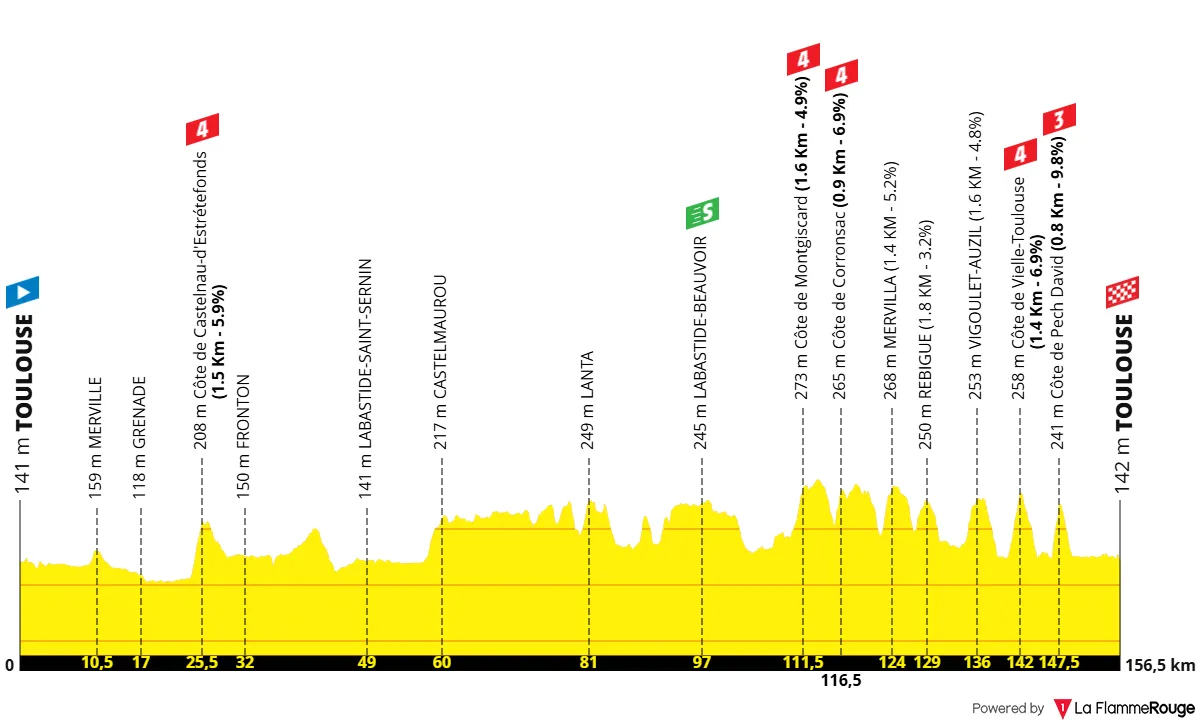
Stage 11: Toulouse - Toulouse, 156.6 kilometers
The second week starts off with a day that begins and finishes in Toulouse. A day for a potential breakaway, late attacks or reduced bunch sprint. The finale has plenty small climbs which could blow up the race. It is a short stage with 156 kilometers in distance, but in the end this will turn into an explosive factor.
We have a shark-tooth profile but the most difficult one will be the final one and we will have a very big leadout battle into it. The Côte de Pech David is 800 meters long at 10% and ends with a mere 9 kilometers to go. After a small descent the riders are already within Toulouse and will then cross the city to reach the flat finale where at the end of the day a sprint - albeit reduced - continues to be the most likely scenario.
Read also
Stage 12: Auch - Hautacam
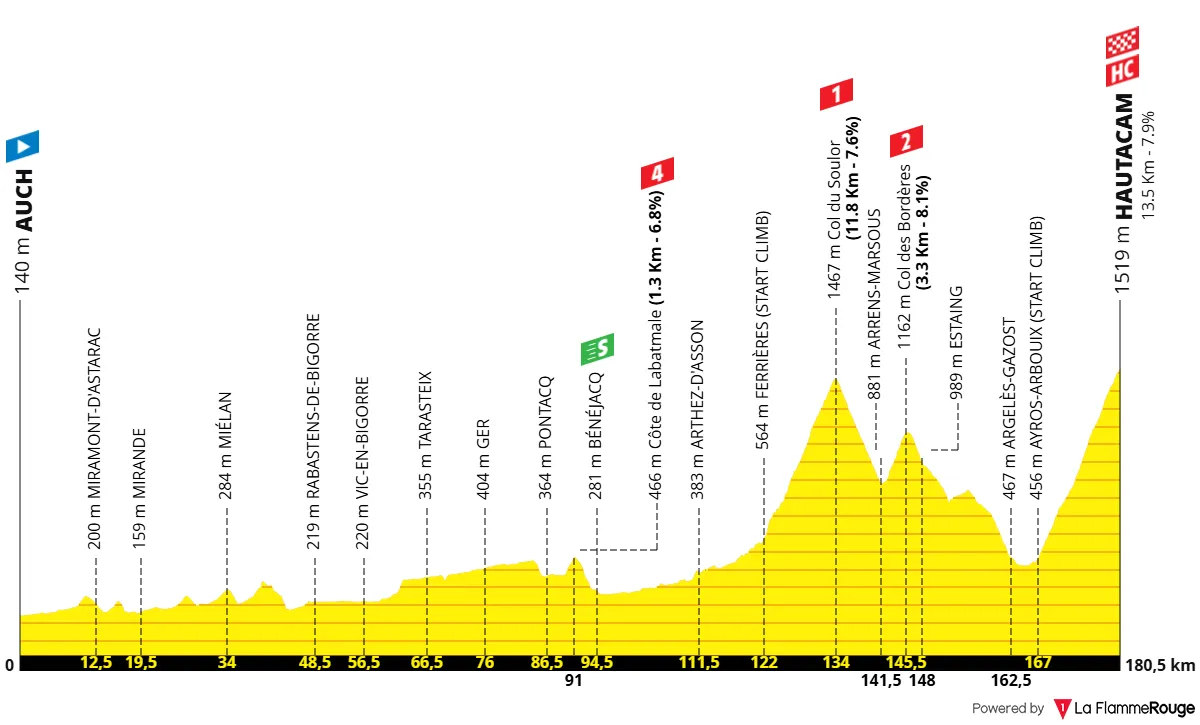
Stage 12: Auch - Hautacam, 180.8 kilometers
The first high mountain stage of the race. After a flat start the riders enter the Pyrenees and the final ascent to Hautacam can cause serious damage. Starting in Auch, the riders may certainly have a calm start to the day but that will change in the final third as the riders go deep into the mountains.
The Col du Soulor will be the first proper climb of the race and a rude awakening for many in the peloton. It summits with 46 kilometers to go and it is 11.6 kilometers long at 7.6%, difficult enough to destroy the peloton quite a lot.
Shortly after a descent there will then Col des Bordères which is 3.3 kilometers at 8%, ending with 35 kilometers to go. It will then be a very quick approach to the final ascent.
Its 13.6 kilometers at 7.8% and has in the past created massive differences at the Tour. The same is expected this time around. It's the first hard summit finish of the race, in the high mountains, and on a climb where last time around Jonas Vingegaard distanced Tadej Pogacar.
Read also
Stage 13 (ITT): Loudenvielle - Peyragudes
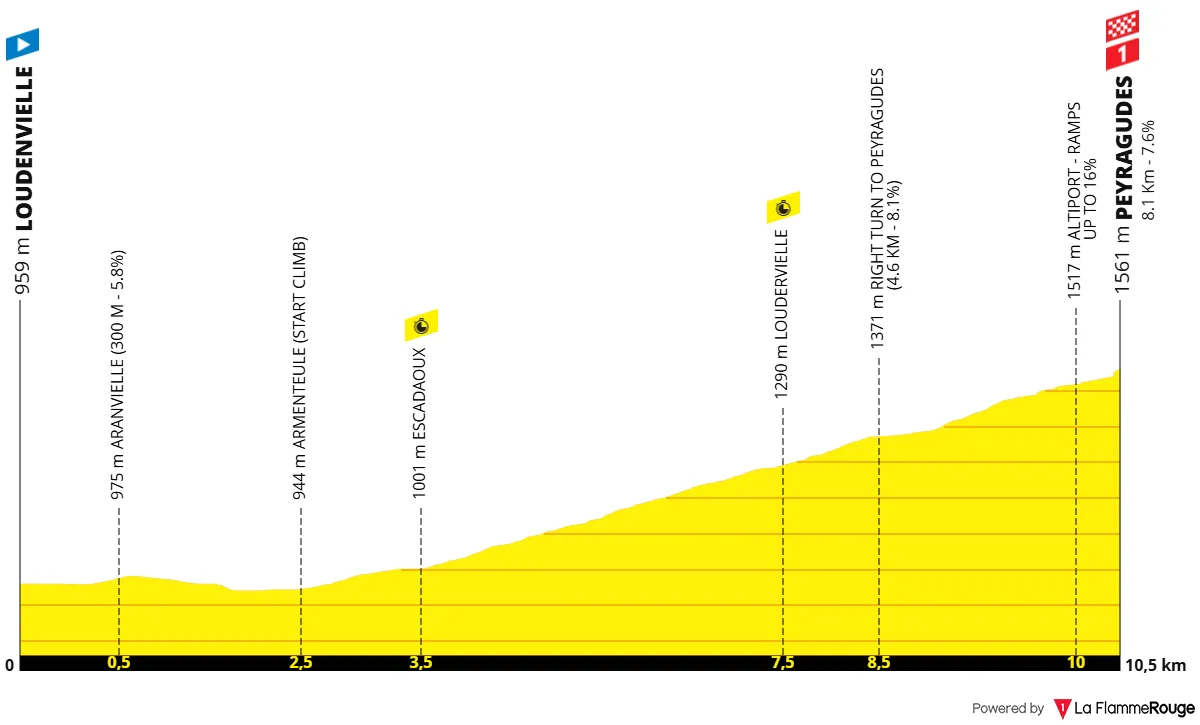
Stage 13 (ITT): Loudenvielle - Peyragudes, 10.9 kilometers
The second day in the mountains is an unusual sight at the Tour: A mountain time-trial! The 8-kilometer ascent to Peyragudes will be tackled after a few flat kilometers in Loudenvielle... The climb averages almost 8% and features the brutal ramp to the line at the altiport that has become famous over the past few years.
Looking at the profile in detail we can see that the first 3 kilometers are mostly flat and will raise questions on which material will be used by the riders in their effort. Time-trial bikes, no time-trial bikes? Handlebar extensions? Nothing at all?
Differences can be made there, but certainly it will be uphill that the grand majority of the gaps will be formed. Whilst the profile does not show it, the final ramp to the line goes up to 20% and it will be a tricky time-trial to pace.
Read also
Stage 14: Pau - Luchon-Superbagneres
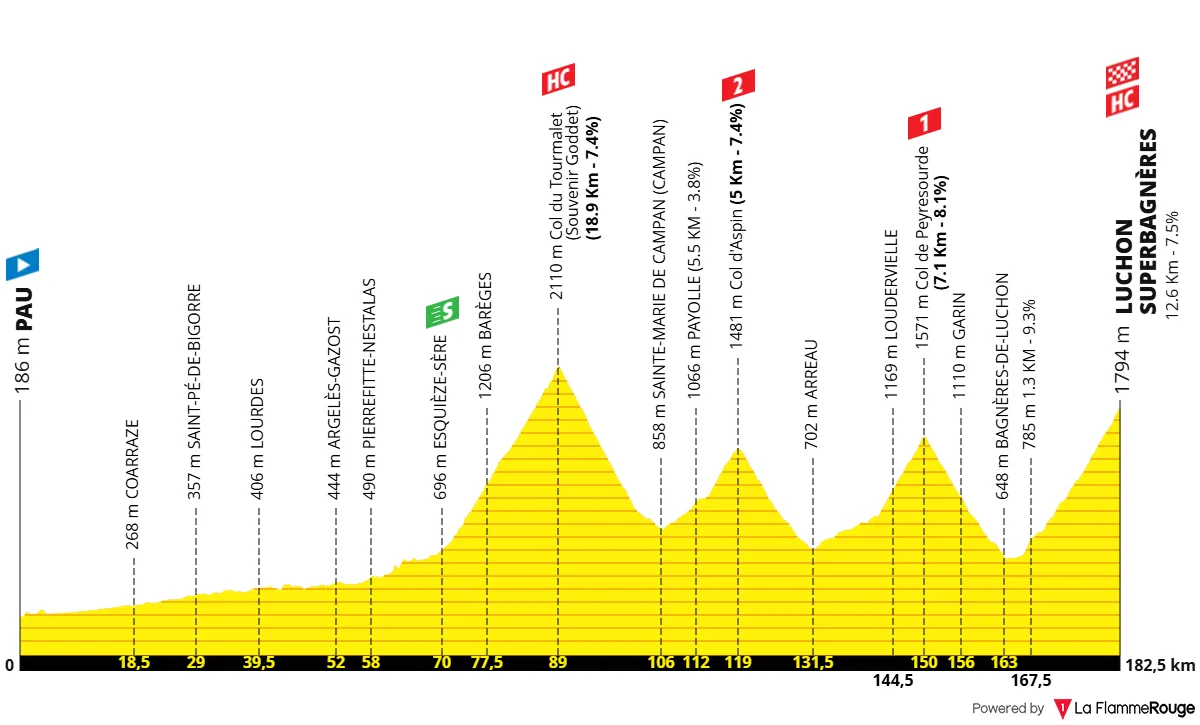
Stage 14: Pau - Luchon-Superbagnères, 182.6 kilometers
Before the riders leave the Pyrenees they tackle a day with 5000 meters of climbing. Four long and constant climbs, the final of which is is Superbagneres. The fact that the first third of the day is flat - classic Tour route - but we still reach such numbers is a good indicator of how difficult the final two will be.
As is the case virtually every year, the riders will be going up the Col du Tourmalet, which will be 19 kilometers at 7.4%. 93 kilometers to go however, this will be a warm-up for what's to come later. But most likely all three climbs before the final one will be serving for fatigue and will not be attacked hard.
The Col d'Aspin (5Km at 7.4%) will end with 63Km to go and later on the Col de Peyresourde (7Km at 8.1%) will end with 32 to go. Both are hard, relatively steep, and will shred the peloton to low numbers before the final ascent. But the true differences will only be made then in Superbagneres.
The climb is 12.6 kilometers at 7.4%, quite constant and difficult. With 1800 meters of altitude and quite a lot of switchbacks, it's a climb with several challenges. The gradients are never truly brutal but the hardest kilometer is the last, and so we could see some meaningful differences emerge even if the attacks only come late in the day.
Read also
Stage 15: Muret - Carcassonne
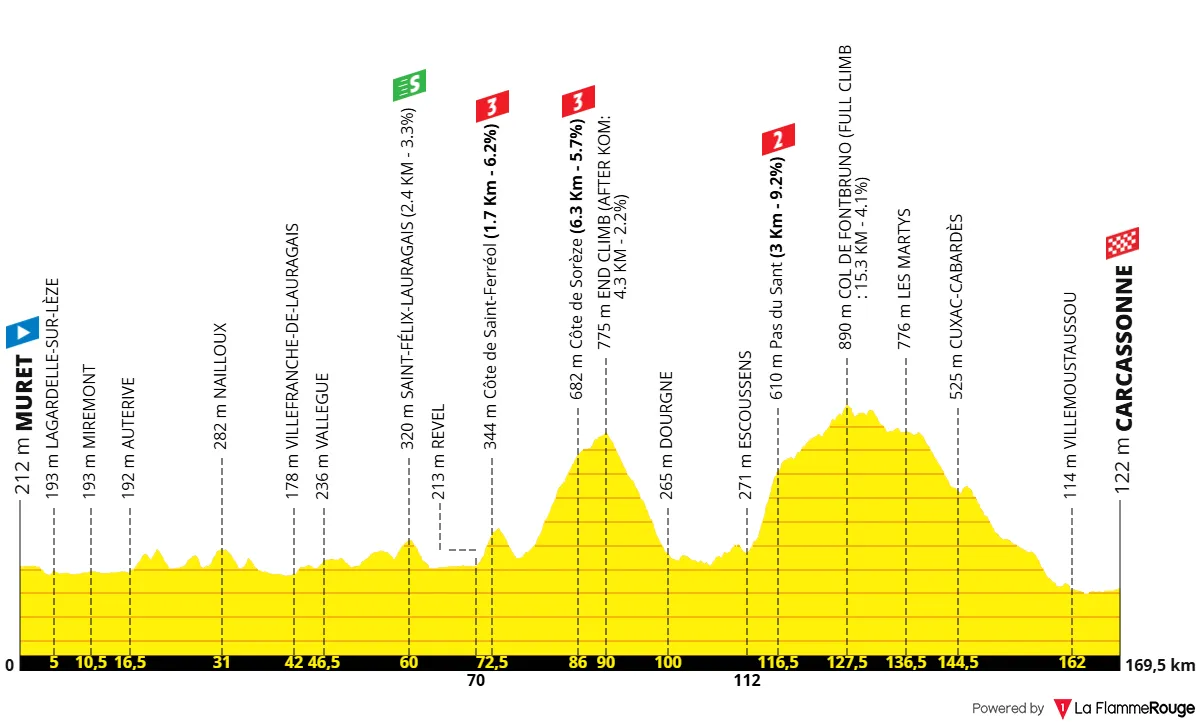
Stage 15: Muret - Carcassonne, 169.8 kilometers
A day that would on paper be for the sprinters but the Tour organizers have made it as hard as they could. A breakaway can very well succeed on this final day of the second week, as the route into Carcassonne features two difficult climbs in it's middle and a relatively downhill finish.
A flat start, so ultimately it won't be easy to escape the peloton, but a lot can happen later in the day regardless of what happens early on. With 80 kilometers to go ends a climb of 10 kilometers in distance, the first 6 at around 6%... But it's the second one where a lot can happen.
Pas du Sant, with it's 3 kilometers at 9% (and the following 11 kilometers which average around 3%) are very hard. In the first section hard attacks are impossible to control for a sprinter-team-led peloton, if they want to keep the fast men and domestiques present. If the pace is easy, any escapee group can actually increase their lead, so it's hard to balance it out. But even after the end of the tough part of the climb, the effort continues on for quite a while and there is a very real chance that some riders may try and set off in pursuit of victory.
All the climbing ends with 52 kilometers to go, and the riders lose 700 meters of altitude until the finish, it will take around an hour or less and chasing will be very hard if there is a strong group in front. The finale in Carcassonne, if it comes down to a sprint, won't be very technical and it will be completely flat.
Read also
Stage 16: Montpellier - Mont Ventoux
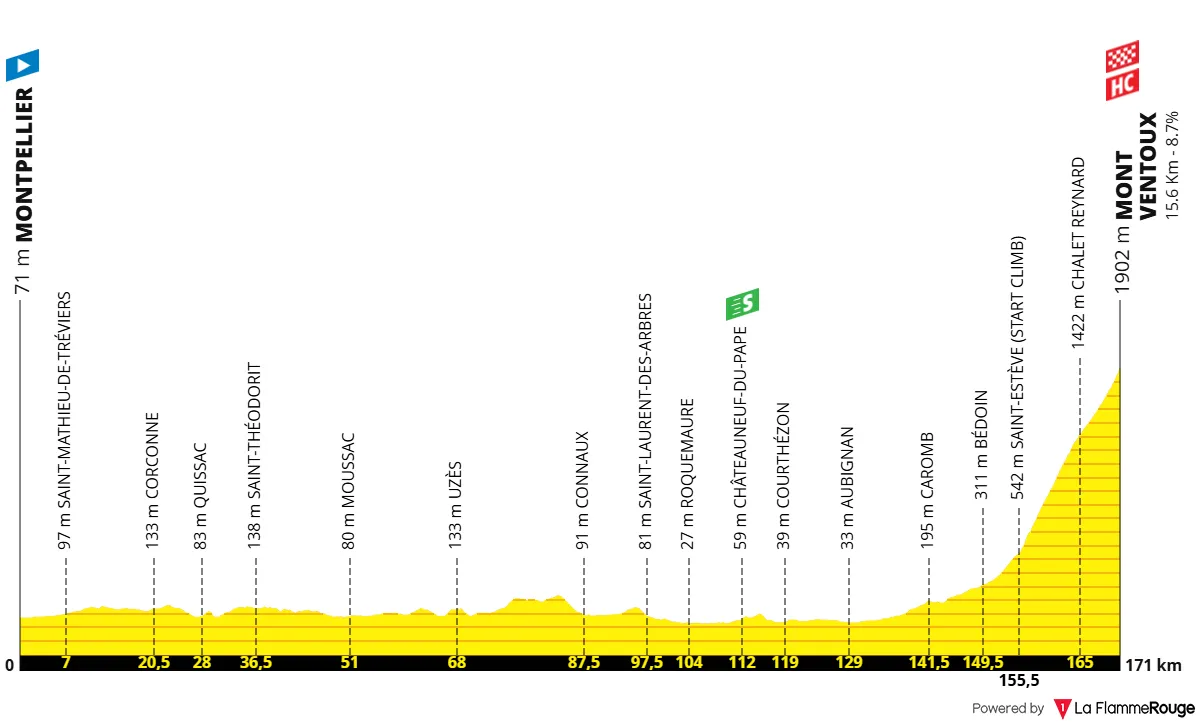
Stage 16: Montpellier - Mont Ventoux, 171.2 kilometers
The first day of the final week has a mostly flat profile and then a brutal finish at Mont Ventoux. The start in Montpellier and the entire stage may be sensitive to the wind so teams will always need to be very careful; however if this isn't the case on the day then it will be a case of holding all the firepower in until the base of the final ascent - and we would be able to expect massive power outputs in the final ascent then.
The Geant de Provence averages almost 9% over almost 16 kilometers, but this is already after a few false-flat kilometers. A mountain for the pure climbers, where the weather conditions often also make a key difference, this could be a tremendous bomb dropped on the GC fight.
Read also
Stage 17: Bollène - Valence
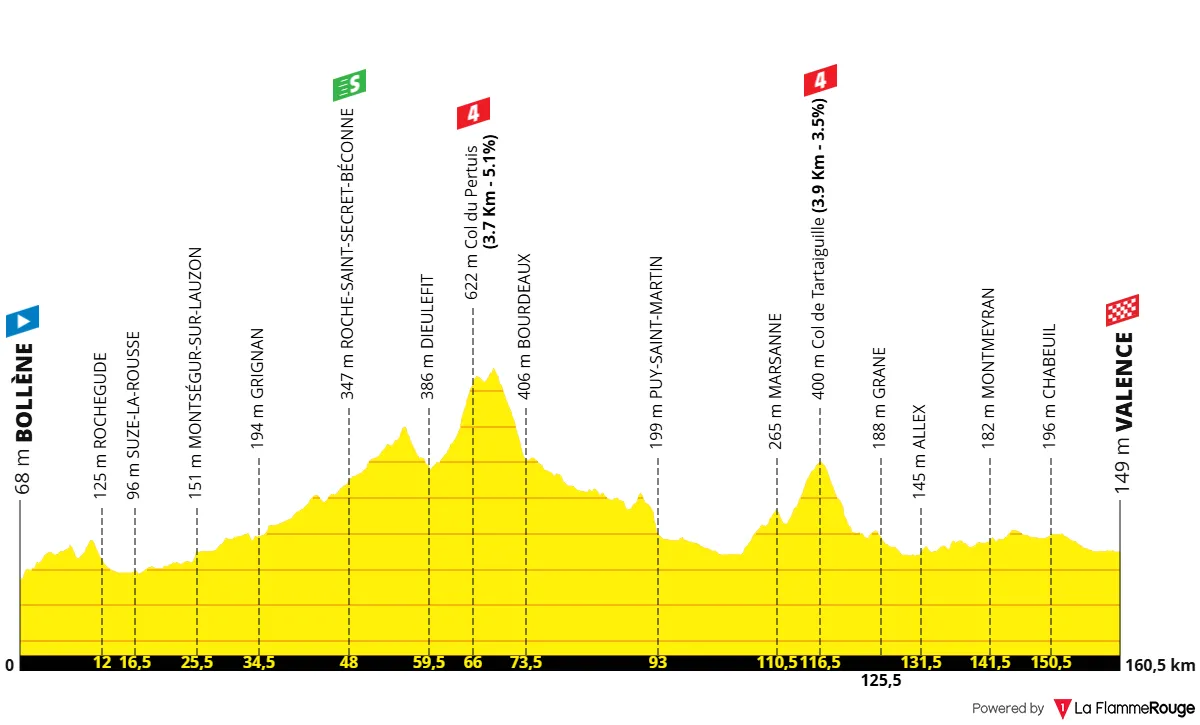
Stage 17: Bollène - Valence, 160.7 kilometers
Another day for the sprinters, but into Valence this time around there should be very little to stop it. Perhaps the final sprint stage of the race. The first half of the stage has some climbing but it won't be serious and it will likely be too late to form a breakaway.
Likely a relaxing day lays ahead, in the middle of the mountains. All focus will be on the final sprint and this will be a very fast one. In Valence the finale will be straightforward until a sharp corner with 600 meters to go. From there on, fully straight and flat to crown a sprinter.
Read also
Stage 18: Vif - Courchevel (Col de la Loze)
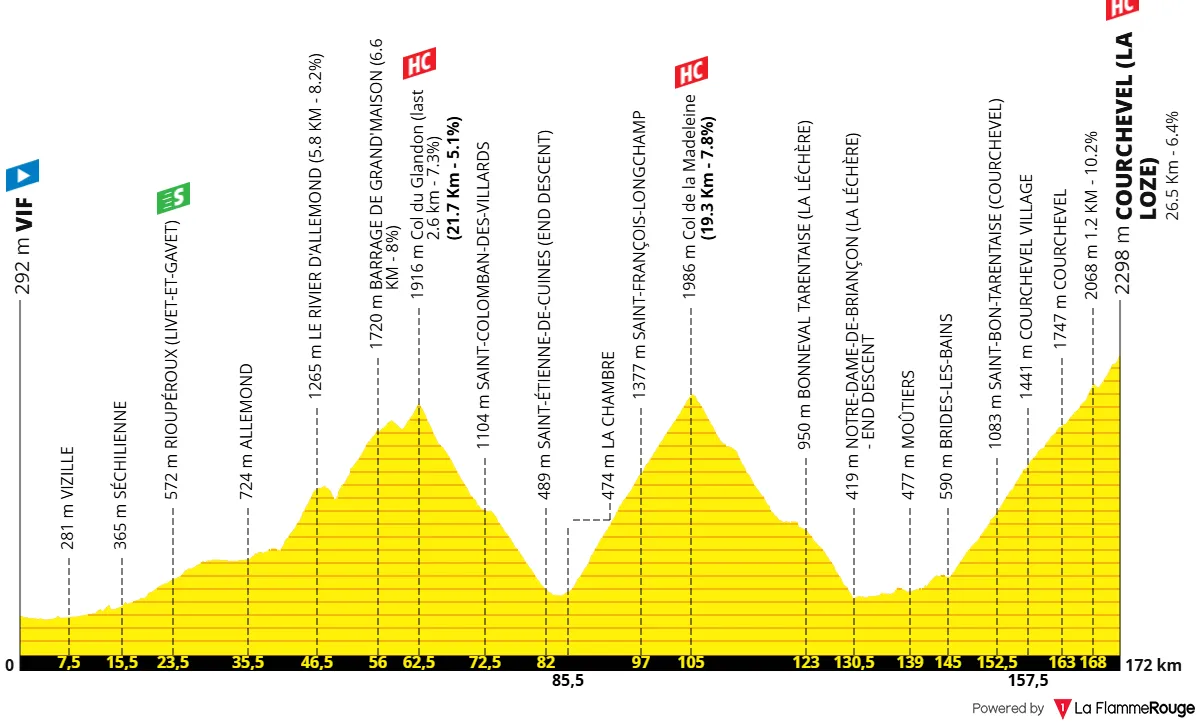
Stage 18: Vif - Courchevel (Col de la Loze), 172.2 kilometers
5500 meters of climbing on stage 18 of the race, the hardest day of the Tour with a lot of climbing meters and altitude. The Col du Glandon opens it up, the Col de la Madeleine settles the peloton even further, but the hardest climb of the day is the Col de la Loze.
21.7 kilometers at 5%, but the average does not tell the story of the Col du Glandon in any way. It's a climb with two descents and it features several kilometers at around 10%. An inconsistent climb where pure climbers can make the difference but we can also see a lot of tactical racing. If the breakaway goes here we may have a very strong group up the road. But even here a few riders can try to bridge across to riders who attacked earlier in the day.
The second ascent is much more constant: the Col de la Madeleine. 19.3 kilometers at 7.8% is simply brutal, a climb that doesn't let you rest at any point. It will end with 67 kilometers which means that serious attacks aren't likely, but the descent will be very fast and it can contribute a lot to the damage on the final ascent.
Actually, it is not the side that has been climbed over the past editions, it's a different ascent into Courchevel which is over 26 kilometers long and will be a brutal finale. It's 26.3 kilometers at 6.4%, an hour-long ascent, rather constant for the first 20 kilometers, and then with a few irregular ramps all the way to the summit. Some flat and even downhill sections, but also a lot of ramps at over 10% where you can't really get into a rhythm.
Read also
Stage 19: Albertville - La Plagne
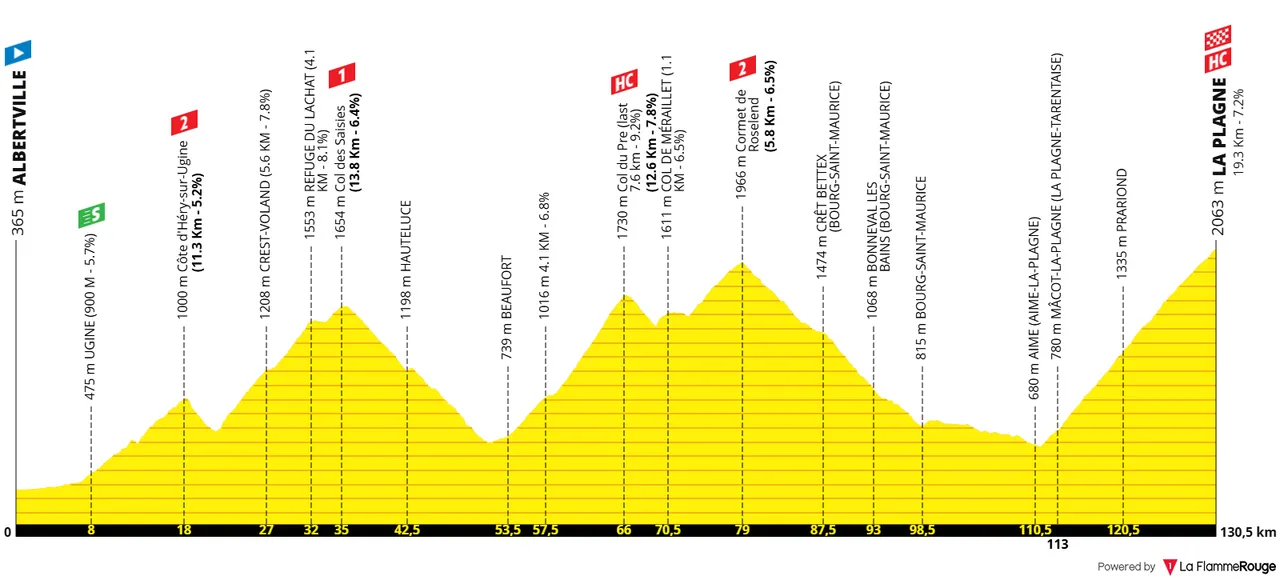
Stage 19: Albertville - La Plagne, 130.6 kilometers
The final high mountains day into La Plagne will feature five categorized climbs, but it will all come down to the final one. The Tour made the stage only 130 kilometers long so it's very short, but it will pack climbing from start to finish.
11.3 kilometers at 5.2% and then the Col de Saisies (13.8 kilometers at 6.4%) is quite a difficult combination of climbs to start the day off with and it could trigger a lot of interesting plot lines to the day early on.
The Col du Pré is the steepest climb of the day, it's final 7.6 kilometers averaging over 9% in gradient. This climb ends with 64 kilometers to go, and shortly after the peloton still climbs a bit of the Cormet de Roseland (51Km to go) before a very fast descent that leads into the final climb.
19 kilometers at over 7% will make for another gruesome GC challenge before the riders leave the mountains. The climb is as constant as it could be, but in such gradients it can make quite a lot of difference. At the end of such a week and race, this almost hour-long climb will prove to be a worthy final pure climber challenge.
Read also
Stage 20: Nantua - Pontarlier
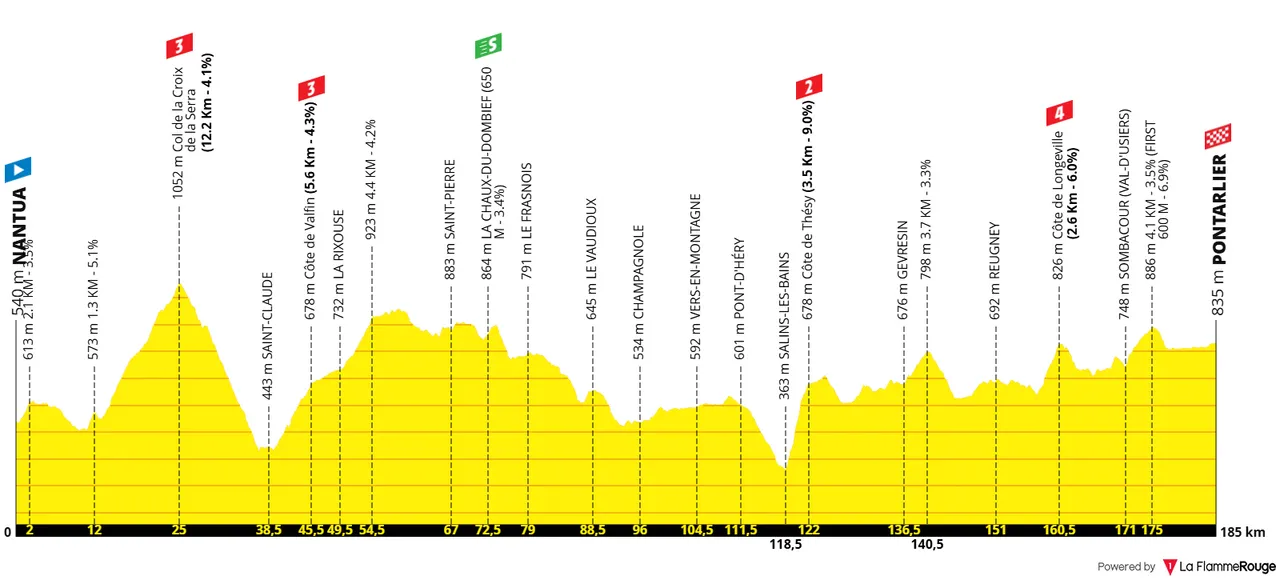
Stage 20: Nantua - Pontarler, 185.1 kilometers
Stage 20 will be a hilly day and into Pontarler we should have a breakaway succeed. This one could include many classics riders, sprinters and even climbers or GC figures trying to make a final impact in the overall classification.
It's unusual for stage 20 to have this format but it's an interesting novelty from the Tour. The 12-kilometer ascent early in the day can absolutely see some hard-hitting uphill action, and all around it are different sorts of climbs where the men-in-form can really take advantage of to go up the road and seek a stage win.
With 63 kilometers to go the riders face the Côte de Thesy, which is hard enough even with the big GC contenders to launch a last-bid attack to try and change the outcome of the overall classification. In such a stage, there could be a massive tactical aspect in case the GC does explode, as on paper it's a certain breakaway day where many different kinds of riders can be in the head of the race.
Even if not, it will still be a very interesting stage with lots of rolling climbs all throughout the final hour of racing. Terrain for rouleurs and classics riders... The last one comes with 10 kilometers to go.
Read also
Stage 21: Mantes-la-Ville - Champs-Elysées
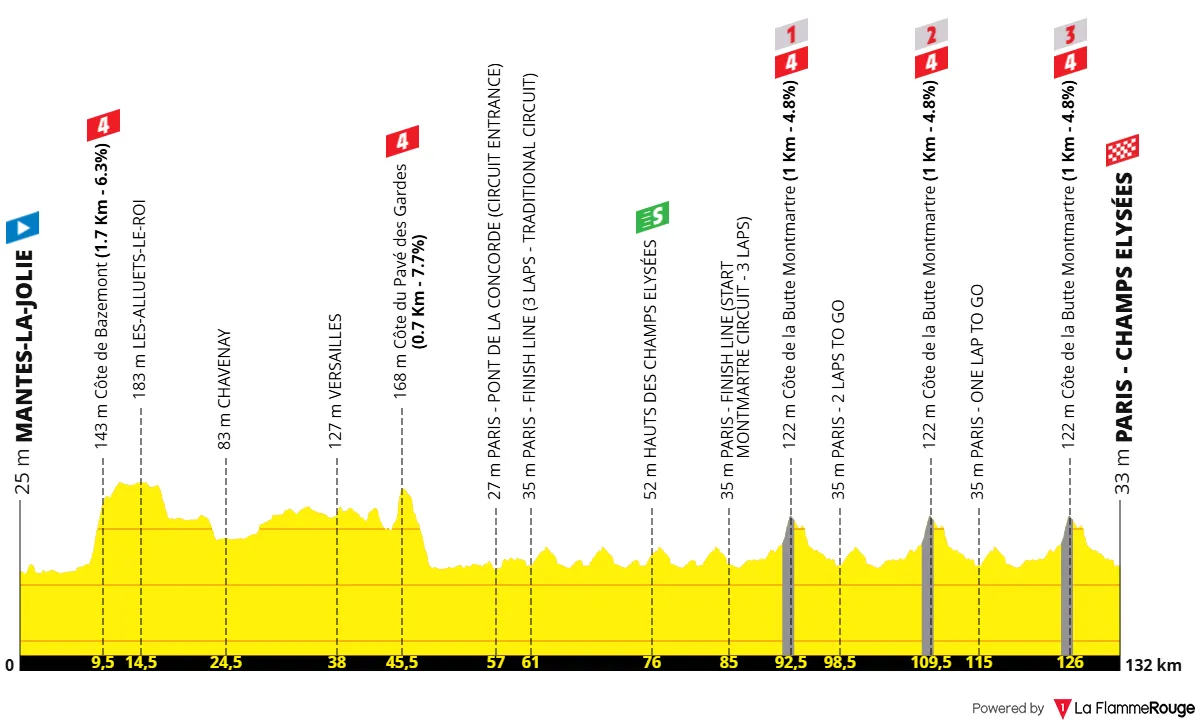
Stage 21: Mantes-la-Jolie - Paris-Champs Elysées, 132.3 kilometers
The final stage of the race returns to Paris but this year with a novelty. The Tour organizers have decided to make it a hard finale, one where a sprint could decide the outcome; but with the cobbled climb to Montmartre being ridden three times in an explosive final circuit (as was the case with the Olympic Games) then we could have the classics riders and GC men fighting for victory.
At the beginning of the day, will we have champagne? Because the climbing starts early on, and perhaps this will not be the case anymore - or it will happen in the neutralized section of the day. A proper stage where we may have a strong breakaway and a proper chase on.
In the final circuit then, three ascents of Montmartre (1Km at 4.8%) with the gradients reaching almost 10%. A very explosive climb, with tons of fans... It ends with 6 kilometers to go and there will be a quick run-in back to Champs-Elysées where we may not have a bunch sprint completing this race.
Read also
claps 3visitors 3
Write a comment
Just in
Popular news
Latest comments
- We're blowing water out of our noses laughing at you. 😂😂awp23-10-2025
- Article from the dept of who cares? It's entertainment. These guys are both fun to watch.itsent23-10-2025
- I'm still laughing at your big reach here with supporting this guy! Are you a friend of his?frieders323-10-2025
- AWP Last I checked: ToC no longer exists ToC only became top level way after Horner ToC was the only Us top level stage race ever. ToC was 90% US participants in Horners time. And to make things Ironic: ToC was sponsored by AmGen maker of EPO ToC went without EPO doping controls for years because of fighting over who should get rights to controls. Maybe if they’d include cycling at the Enhanced games, sone of the guys could have another go and obviously it would boost participation numbers because few sports were as contaminated as cycling but judging by the meagre program so far you have to ask if it will take place at all. Maybe MJ’s venture and payment problems has given people 2nd thoughts about rushing towards alternatives.Mistermaumau23-10-2025
- Some have their own doctors, even gynaecologistsMistermaumau22-10-2025
- If you can't infer my comment you might not be suited to make your own. Can't fix stupid it seems.awp22-10-2025
- You're entitled to your opinion. Last I checked, the Tour of California and the Tour de Georgia were not second rate races. Could you get through the first two hours on any of those stages?🤡awp22-10-2025
- He's clearly just one cog in many that are responsible.Veganpotter22-10-2025
- I think most riders deal with their own meds now. The liability for a team is too high and it's too hard to not leave a paper trail supplying so many people.Veganpotter22-10-2025
- It's not just Sky, but all teams. Most trams have some type of doping program in place. The UCI turn a blind eye to it until someone starts making remarks about it to the media. And after a certain point, an investigation starts. At times they bust someone and at other times claim the evidence is not "conclusive" and that ends it. I'm sure members of Sky during the era of Wiggins are Froome will be named as well as one or both of the main riders named abovemd197522-10-2025


